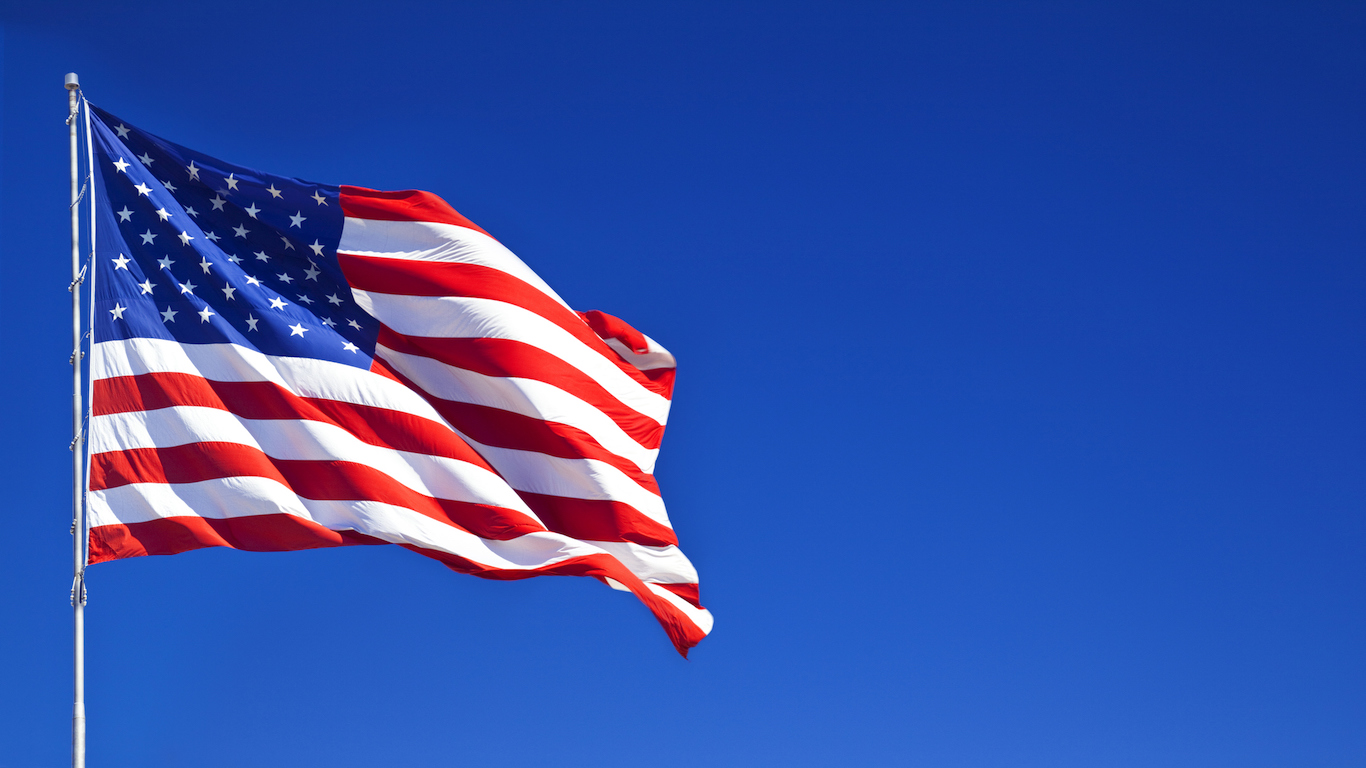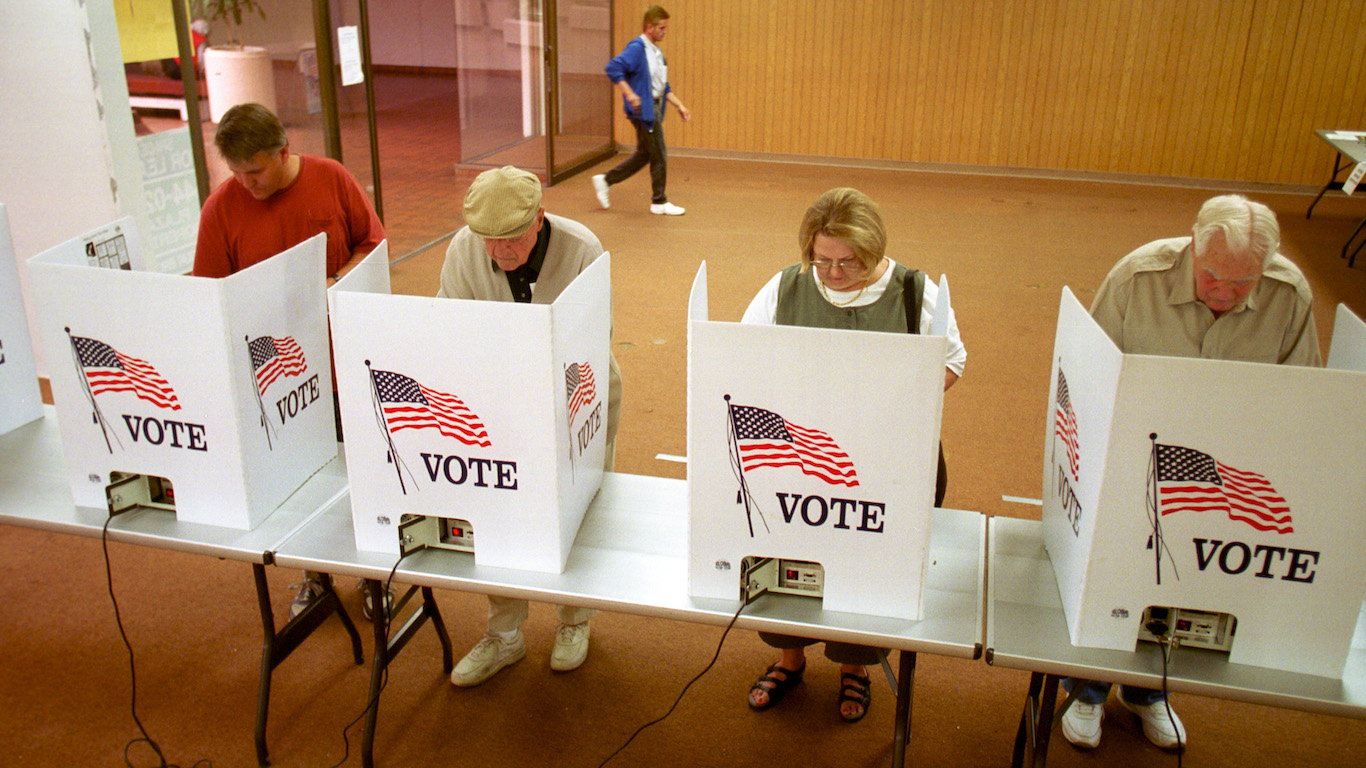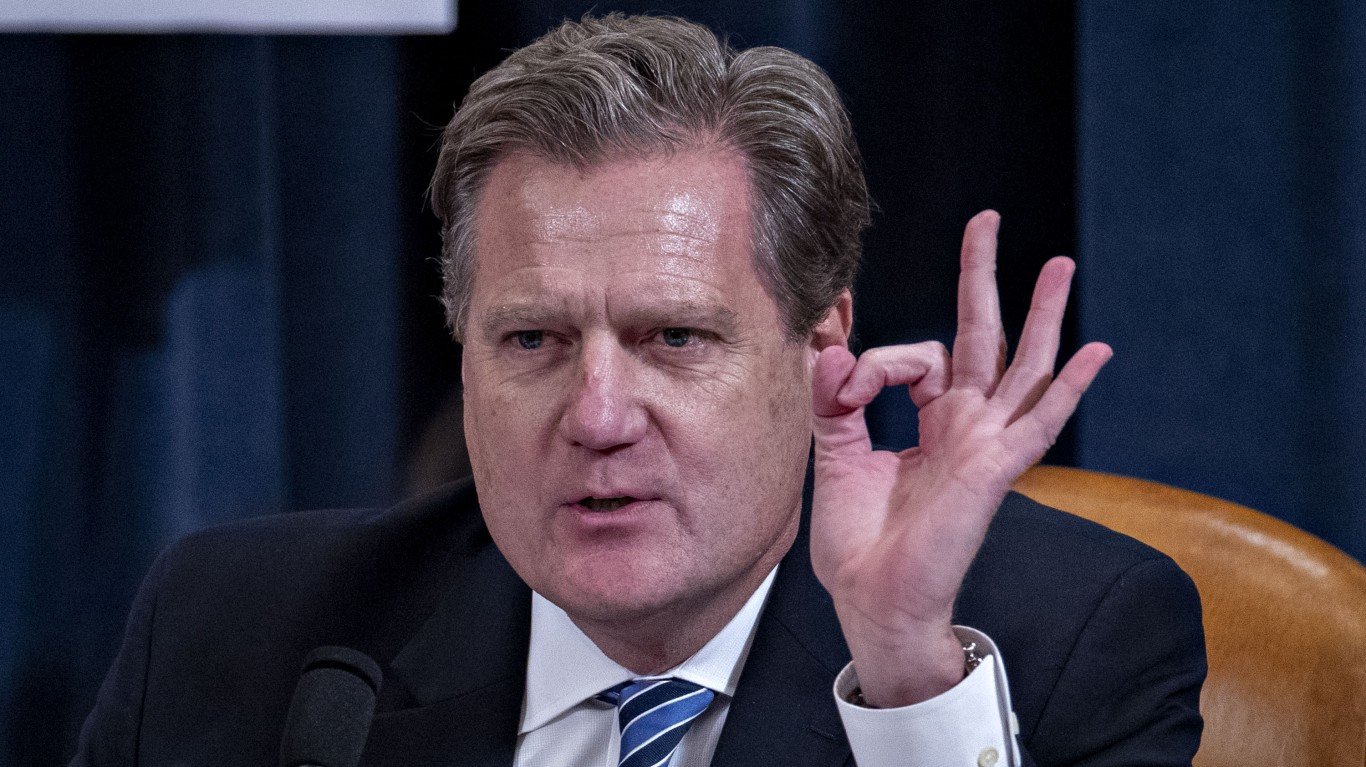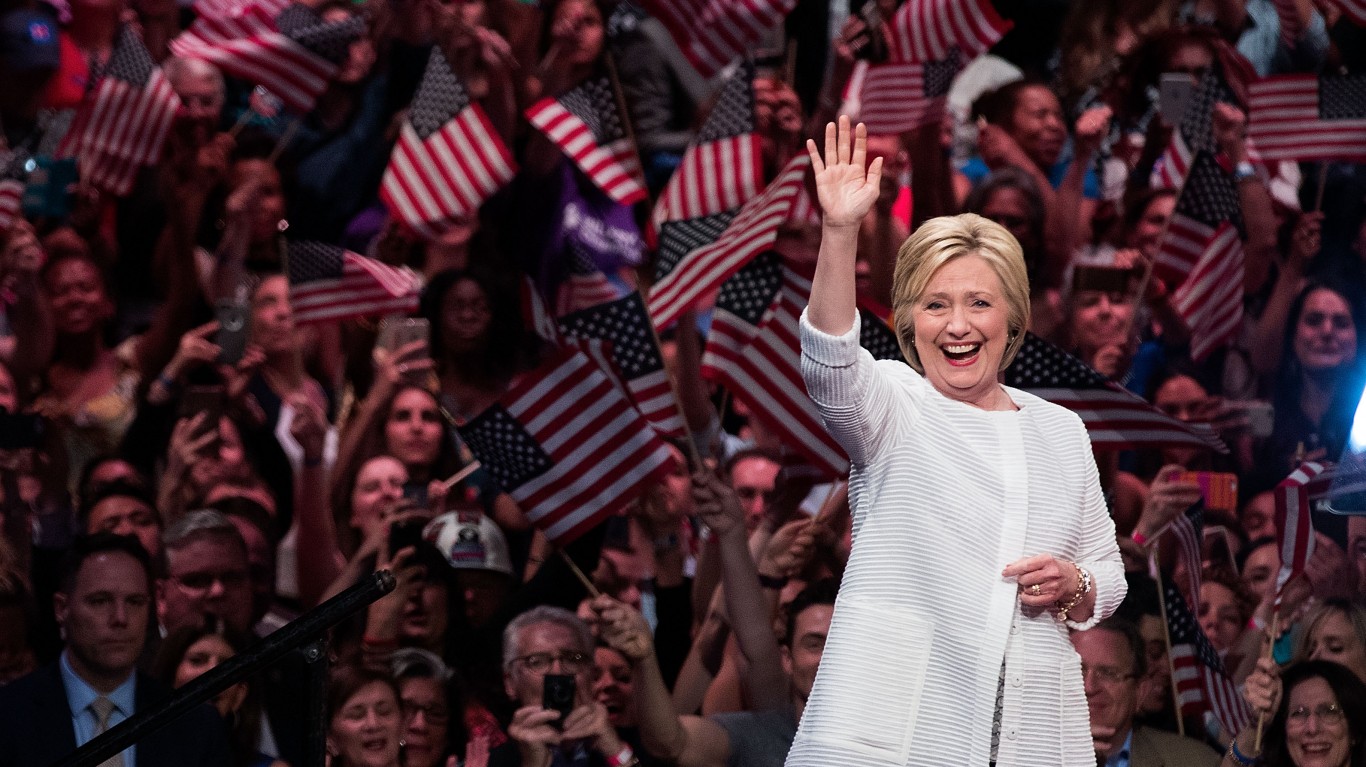

The second contest in the 2020 Democratic presidential nomination process will be the New Hampshire primaries on Feb. 11. Candidates from both parties will continue the long march that leads to the national conventions in July and August when the candidates are nominated for president by the Democratic and Republican parties.
As the primaries get underway, 24/7 Wall St. reviewed the campaign trails of the winner and runner-up in each party’s New Hampshire primary from 1972 to 2016. While New Hampshire has held a primary since 1916, primaries were not the important part of the nominating procedure that they are today before the 1968 presidential election. That year Democrats decided on reforms to wrest control of the nomination process away from party leaders, open up voting to more people, and make the process more transparent.
Voting statistics were obtained from the Federal Elections Committee (FEC). Because the FEC did not publish total votes cast in the New Hampshire primary elections between 1972 and 1988, voting totals for these years were taken from news and research reports where possible.
Click here to see how much the New Hampshire primary mattered in every election
The New Hampshire primary follows the Iowa caucuses on the political calendar. Here’s how important the Iowa caucuses were in every election. New Hampshire’s primary is the first in the nation by state law, which mandates that the state hold its primary “on a Tuesday selected by the secretary of state which is 7 days or more immediately preceding the date on which any other state shall hold a similar election, whichever is earlier.” The New Hampshire electorate takes pride in electoral engagement. Voter turnout during the New Hampshire primary in 2016 was 52%, the highest of any state.
“The state has a very participatory and civic culture,” said Dante Scala, professor of political science at the University of New Hampshire, in an interview. “Candidates can get around the state pretty quickly and this lends itself to retail politicking. It’s the type of place where voters can see candidates multiple times.”
The nation’s primary process has taken on greater importance since 1972, when both parties sought to open up voting to more people. Since 1972, 10 winners of the New Hampshire primary have won the Republican nomination, and six became president. Seven victors of the New Hampshire primary gained the Democratic nomination, and three went on to become president.
Success in New Hampshire has elevated the candidacies of formerly little-known politicians such as Jimmy Carter in 1976. However, finishing second did not foreclose the destiny of future presidents Bill Clinton in 1992, George W. Bush in 2000, and Barack Obama in 2008. Here is each president’s path to the Oval Office.
1972 New Hampshire Democratic primary
Edmund Muskie
> Share of votes: 46.4% (totals not available)
Edmund Muskie, senator from New Hampshire’s neighboring state of Maine, won the New Hampshire primary over South Dakota Sen. George McGovern. His victory, however, was perceived by political pundits and the media as disappointing. The press conference in which he criticized attacks on his wife and himself by Manchester Union Leader publisher William Loeb seemed to demonstrate a lack of composure and hurt his chances as a presidential candidate.
[in-text-ad]
George McGovern
> Share of votes: 37.2% (totals not available)
The South Dakota senator finished a strong second in the New Hampshire primary. Coupled with the decline in the fortunes of Maine Sen. Edmund Muskie, McGovern, an outspoken critic of the Vietnam War who felt the tax system was unfair to the poor, went on to win the Democratic nomination. Still, he was beaten by President Richard Nixon in the election.
1976 New Hampshire Democratic primary
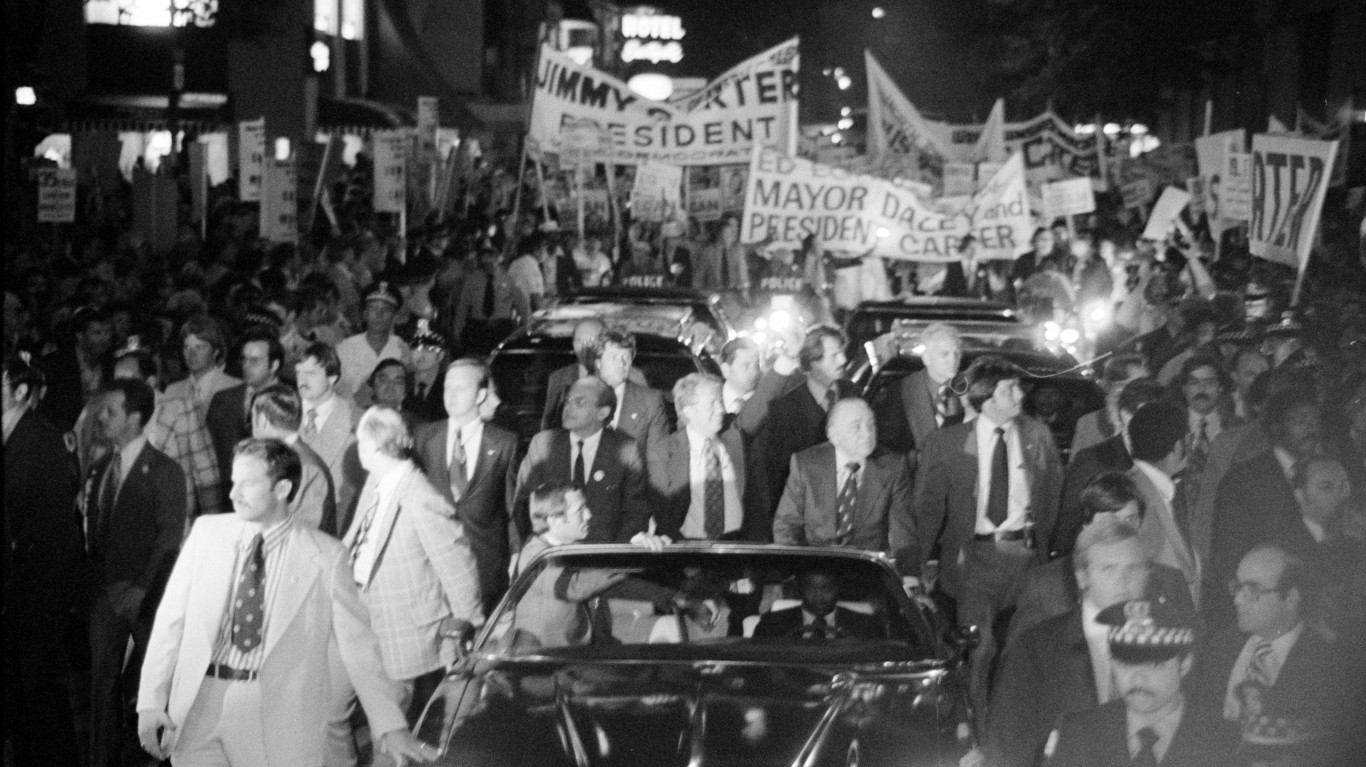
Jimmy Carter
> Share of votes: 28.4% (23,373)
Even though he was governor of Georgia, Jimmy Carter did not have great name recognition and met as many voters as possible in the weeks leading up to the primary. Carter shocked the political establishment by winning New Hampshire. Carter won over four other Democratic candidates, including Morris Udall, a liberal congressman from Arizona, and Indiana Sen. Birch Bayh, a sponsor of the Equal Rights Amendment.

Morris Udall
> Share of votes: 22.7% (18,710)
Morris Udall was a liberal congressman from Arizona. He was a law professor and former basketball player who was known for his intelligence and wit. He finished second in the New Hampshire primary, the first of many second-place finishes in Democratic primaries in 1976.
1980 New Hampshire Democratic primary
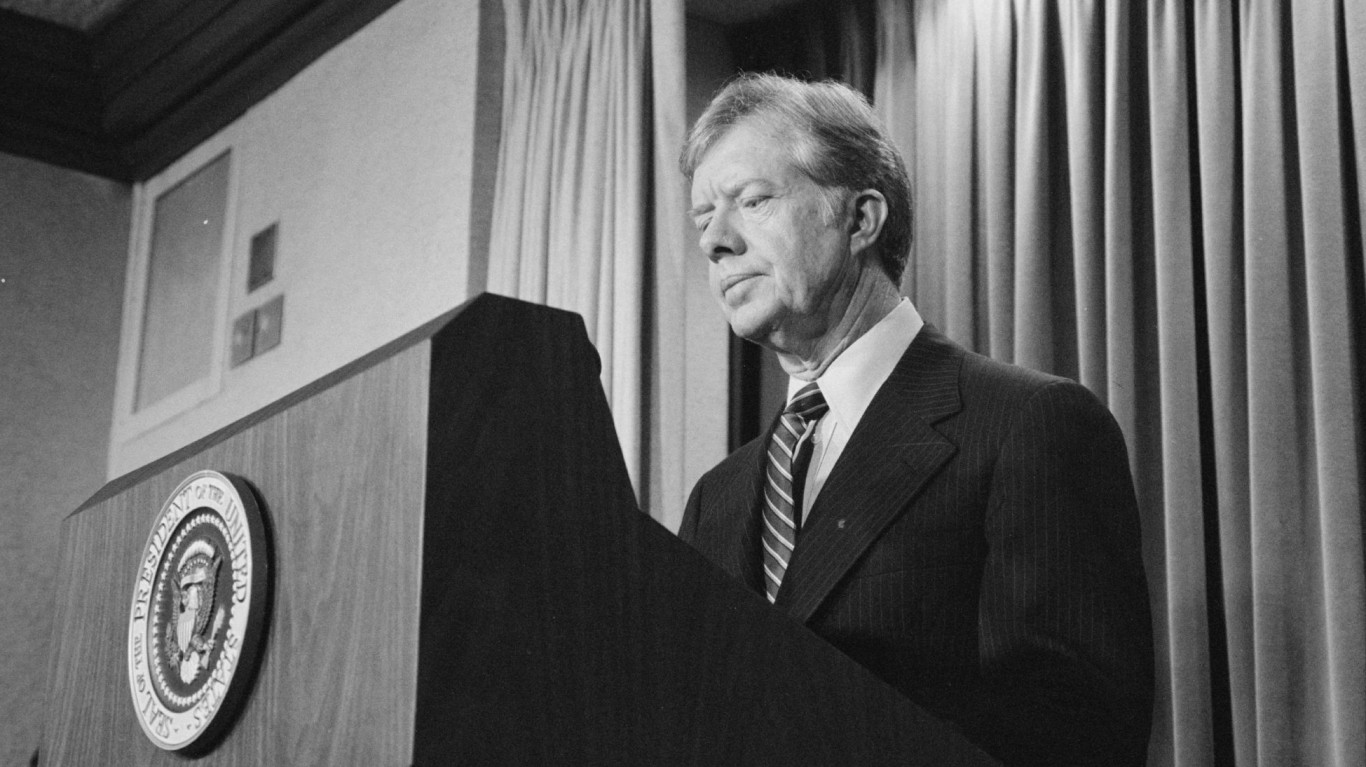
Jimmy Carter
> Share of votes: 47.1% (52,692)
President Jimmy Carter won the New Hampshire primary on his way to winning the Democratic nomination. Sen. Edward Kennedy from neighboring Massachusetts challenged Carter for the nomination, but Carter won in the New Hampshire primary. Carter was unseated by Republican nominee Ronald Reagan in a landslide in the 1980 election.
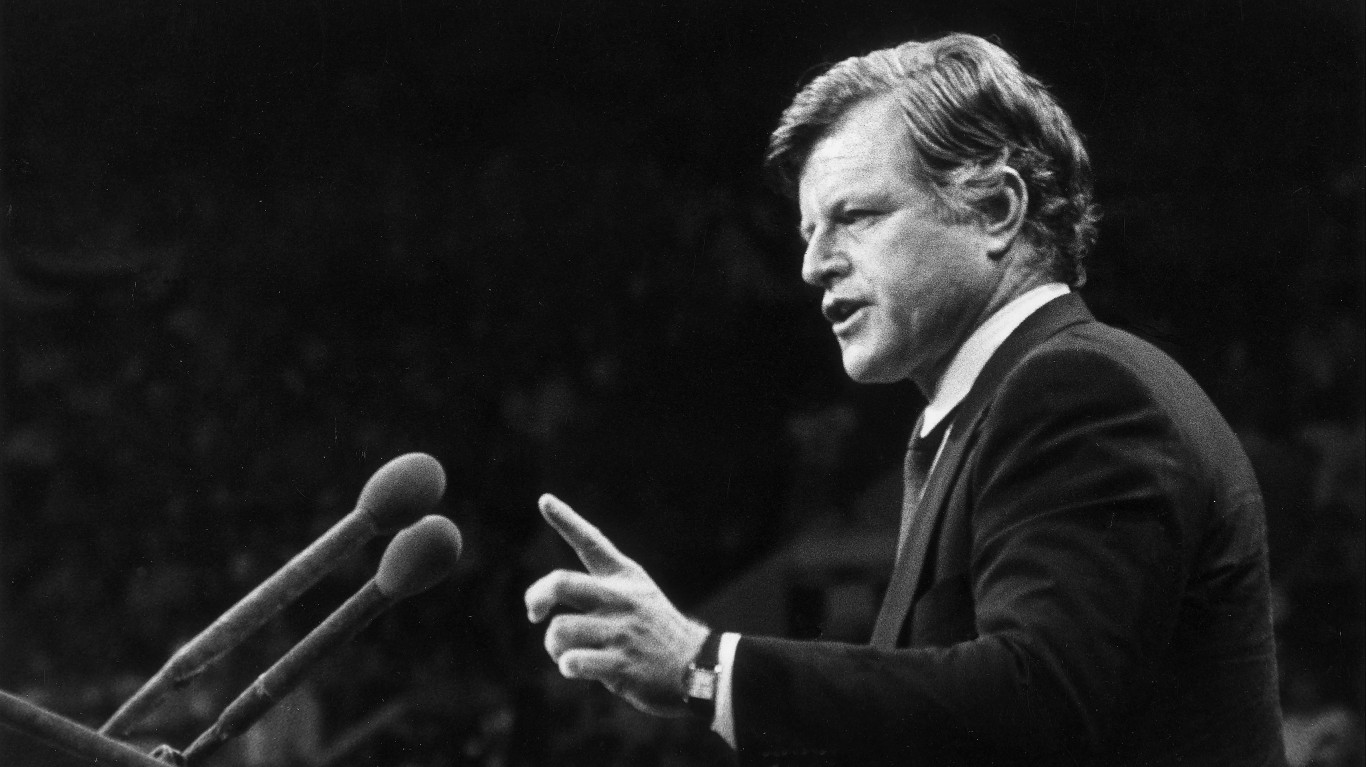
Ted Kennedy
> Share of votes: 37.3% (41,745)
Massachusetts Sen. Edward Kennedy, carrying the Democratic Party liberal mantle, challenged President Jimmy Carter for the nomination. Kennedy finished second to the incumbent. It would be the beginning of a prolonged challenge by the long-serving senator — who won 12 primaries — that would ultimately fail.
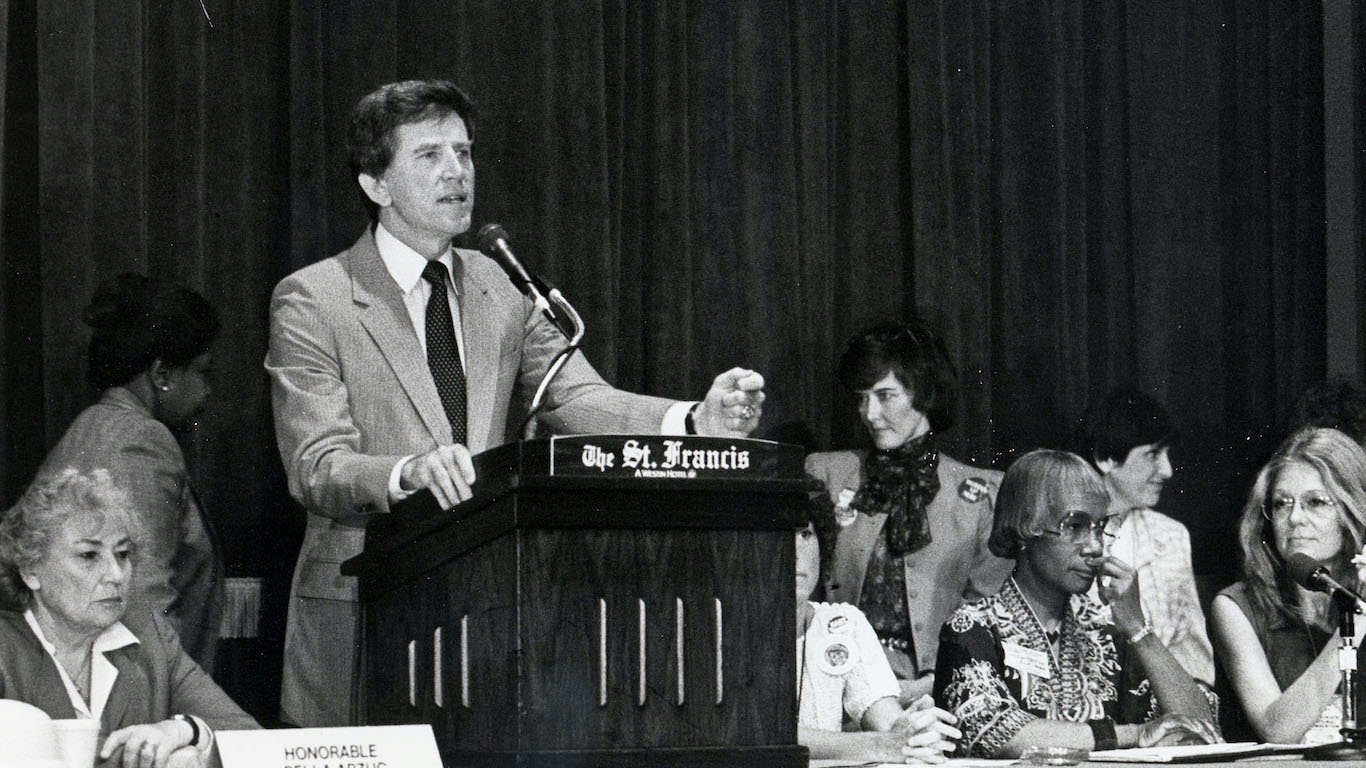
Gary Hart
> Share of votes: 37.3% (29,843 with 88% of precincts reporting)
Colorado Sen. Gary Hart leveraged his telegenic image and the promise of a new generation of leadership to win the New Hampshire primary, enroute to 26 contest victories in 1984. Hart defeated a field in New Hampshire that included former Vice President Walter Mondale, Sen. John Glenn, and Reverend Jesse Jackson. Still, Hart could not secure the Democratic nomination.
[in-text-ad]
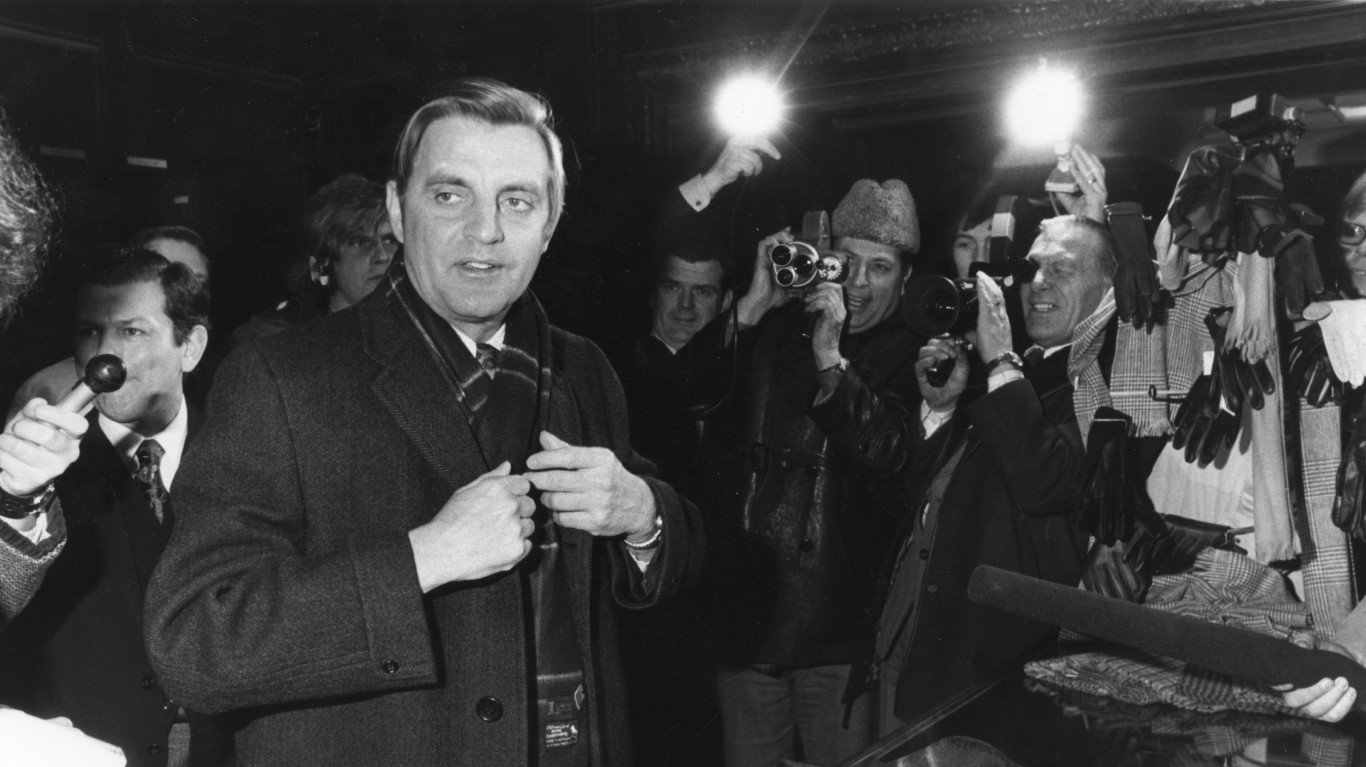
Walter Mondale
> Share of votes: 27.9% (20,240 with 88% of precincts reporting)
After winning the Iowa caucuses, Walter Mondale, the former vice president under Jimmy Carter, suffered three consecutive primary losses to Colorado Sen. Gary Hart. He rallied to win seven of the next 10 primaries on his way to the nomination. Mondale would get routed in the 1984 election by President Ronald Reagan.
1988 New Hampshire Democratic primary
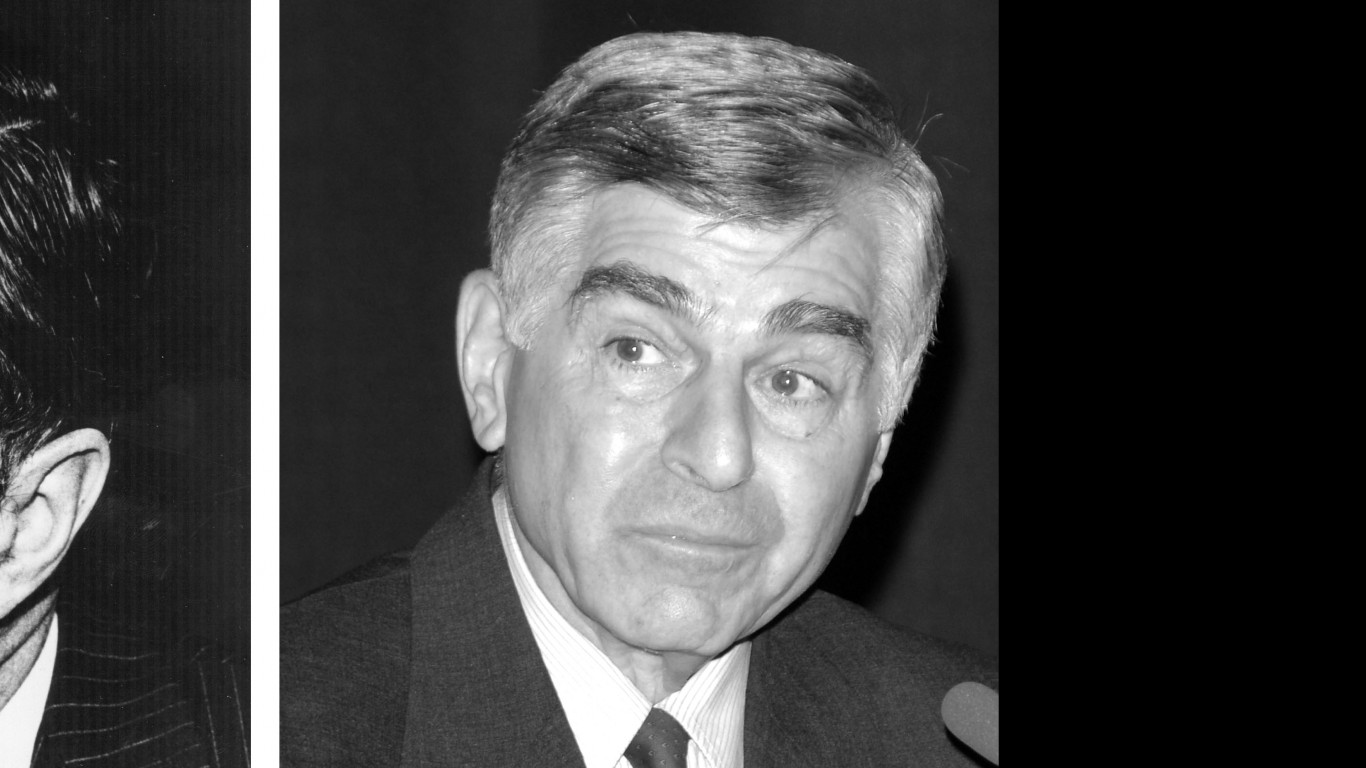
Michael Dukakis
> Share of votes: 37.0% (41,185)
Geography helped Massachusetts Gov. Michael Dukakis win the New Hampshire primary in 1988 as he overcame a third-place finish in the Iowa caucuses. Dukakis faced a competitive field during primary season as four other Democratic candidates — Reverend Jesse Jackson, Tennessee Sen. Al Gore, Illinois Sen. Paul Simon, and Missouri Rep. Richard Gephardt — all won primaries or caucuses. Dukakis won 13 of the last 14 primaries to secure the nomination but would lose to Vice President George H.W. Bush in the election.

Dick Gephardt
> Share of votes: 20.0% (22,464)
Missouri Rep. Richard Gephardt, who railed against unfair trade and relied on strong union support, finished second to Massachusetts Gov. Michael Dukakis in the New Hampshire primary. Gephard had won the Iowa caucuses, then won the South Dakota primary and his home state of Missouri. But a disappointing third-place finish in the Michigan caucuses doomed his campaign, and he dropped out in March.
1992 New Hampshire Democratic primary
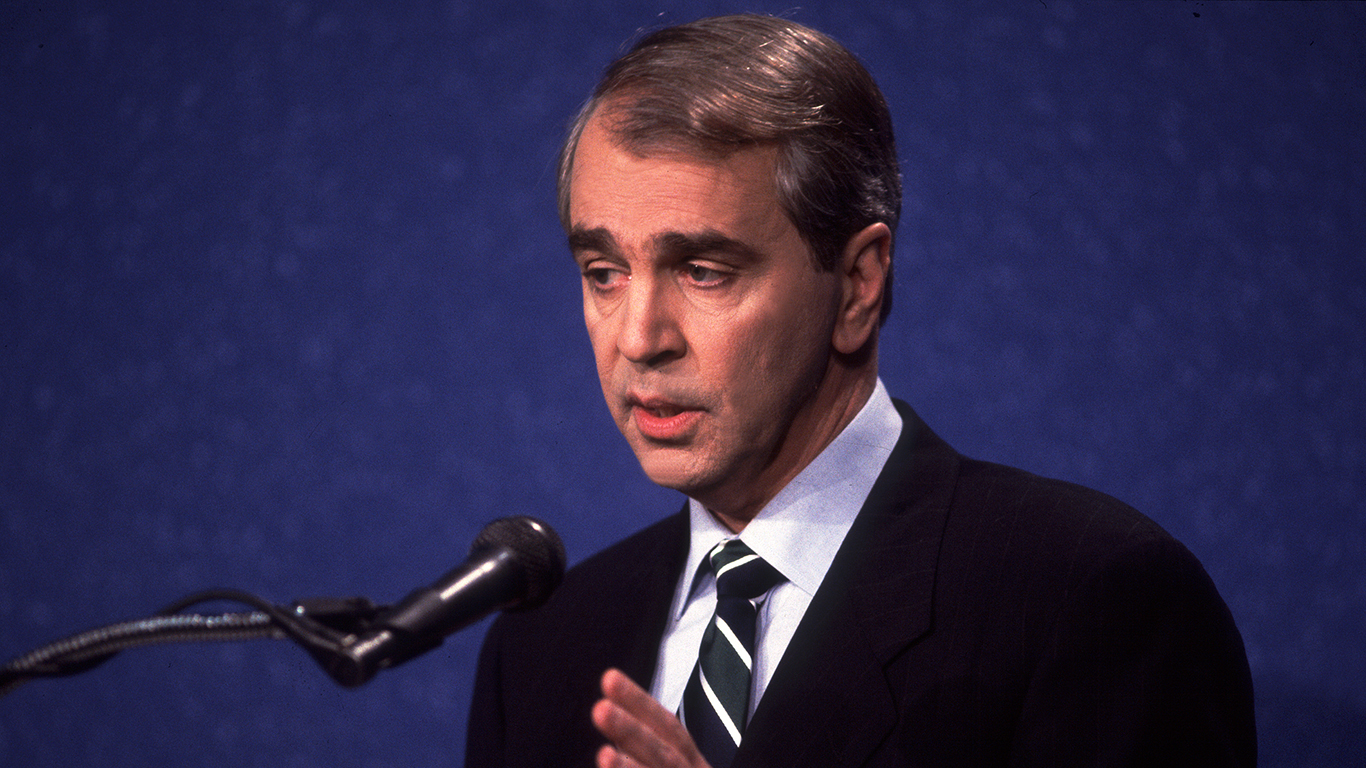
Paul E. Tsongas
> Share of votes: 33.2% (55,663)
Massachusetts Sen. Paul Tsongas won the New Hampshire primary after getting the second-most votes for a candidate in the Iowa caucuses behind Iowa Sen. Tom Harkin. Tsongas would eventually win eight primaries, but his momentum waned and he suspended his campaign in March.
[in-text-ad]
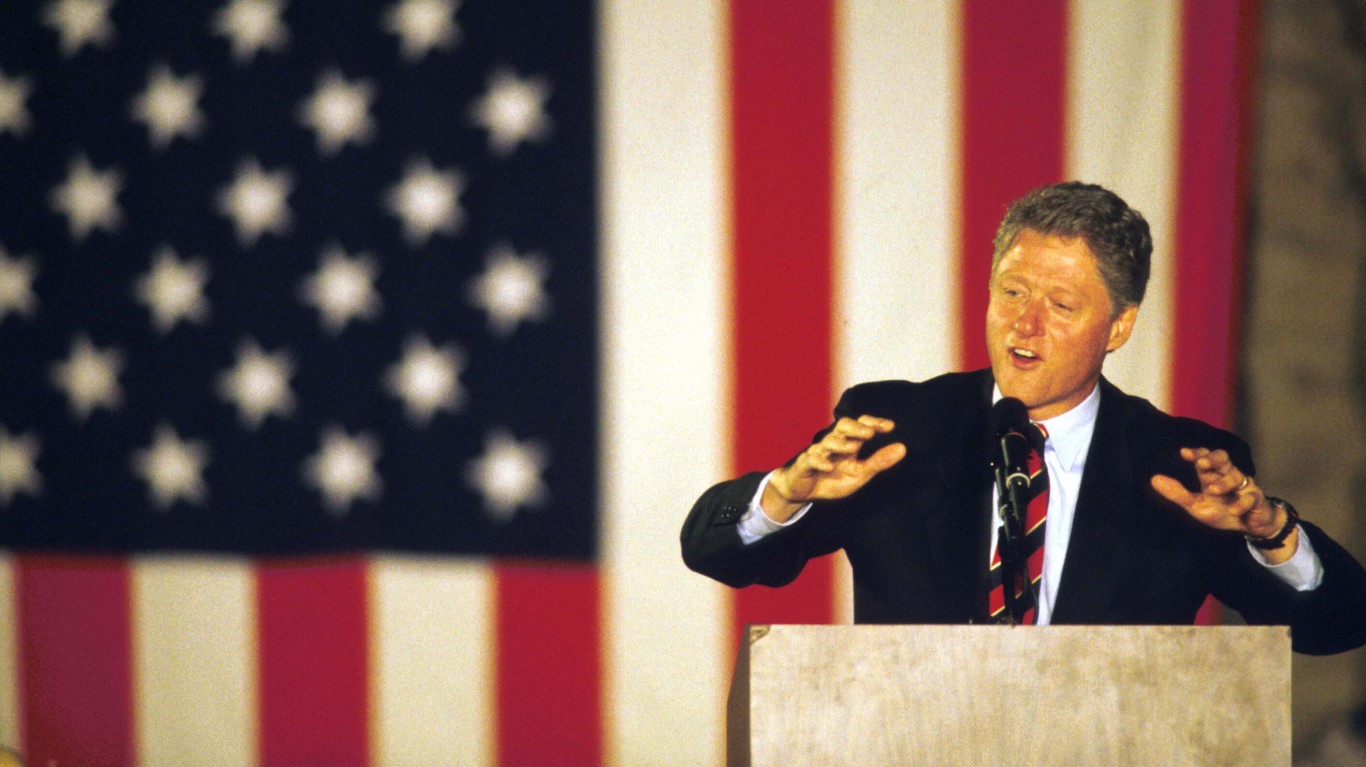
Bill Clinton
> Share of votes: 24.7% (41,540)
The youthful Arkansas Gov. Bill Clinton received less than 3% of the caucuses vote in Iowa and finished in second place behind Sen. Paul Tsongas of Massachusetts in the New Hampshire primary. He would not win his first primary until Super Tuesday, March 3, when he would win Georgia. Starting April 5, Clinton steamrolled the opposition and won all but one primary on his way to the nomination and eventually the presidency.
1996 New Hampshire Democratic primary
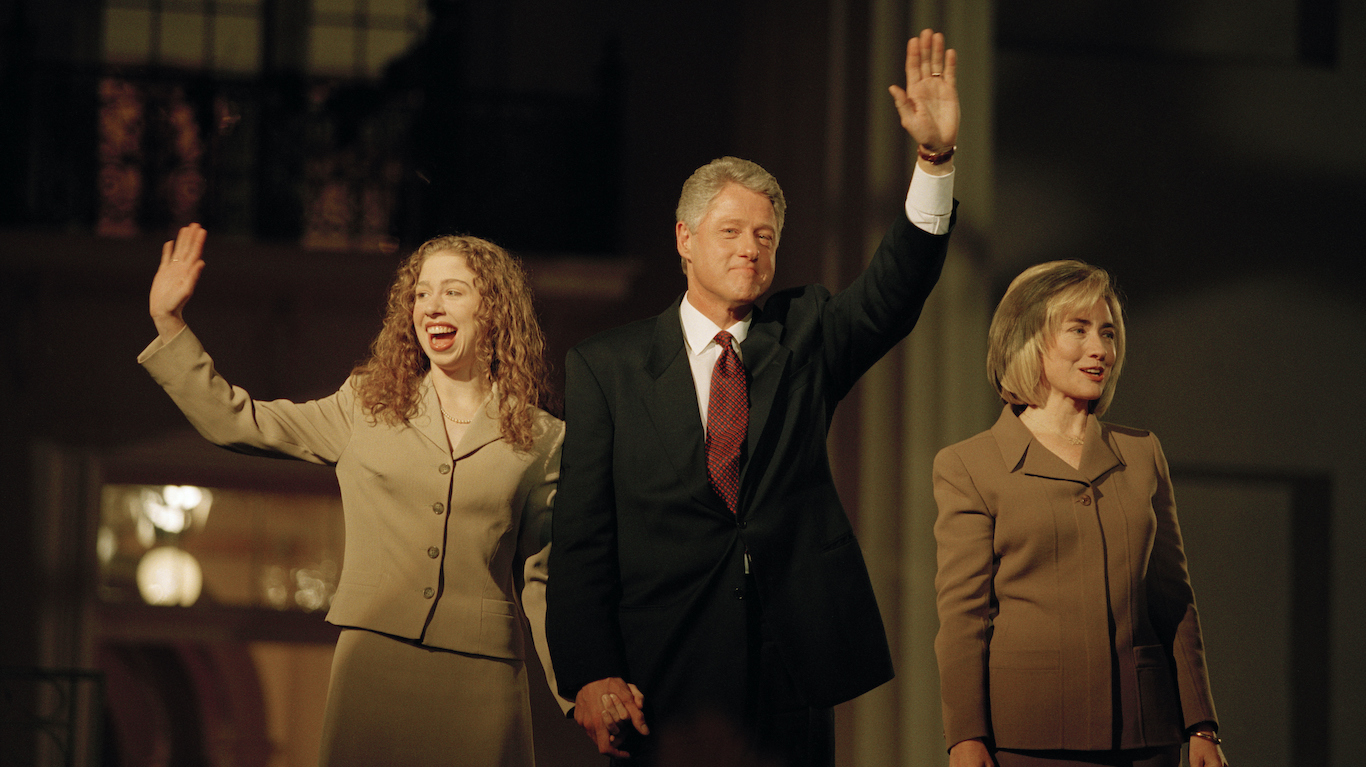
Bill Clinton
> Share of votes: 84.4% (76,797)
President Bill Clinton ran virtually unopposed in 1996. He would go on to win the nomination and become the first Democrat to be re-elected to a second term since Franklin Roosevelt in 1936.
[in-text-ad]
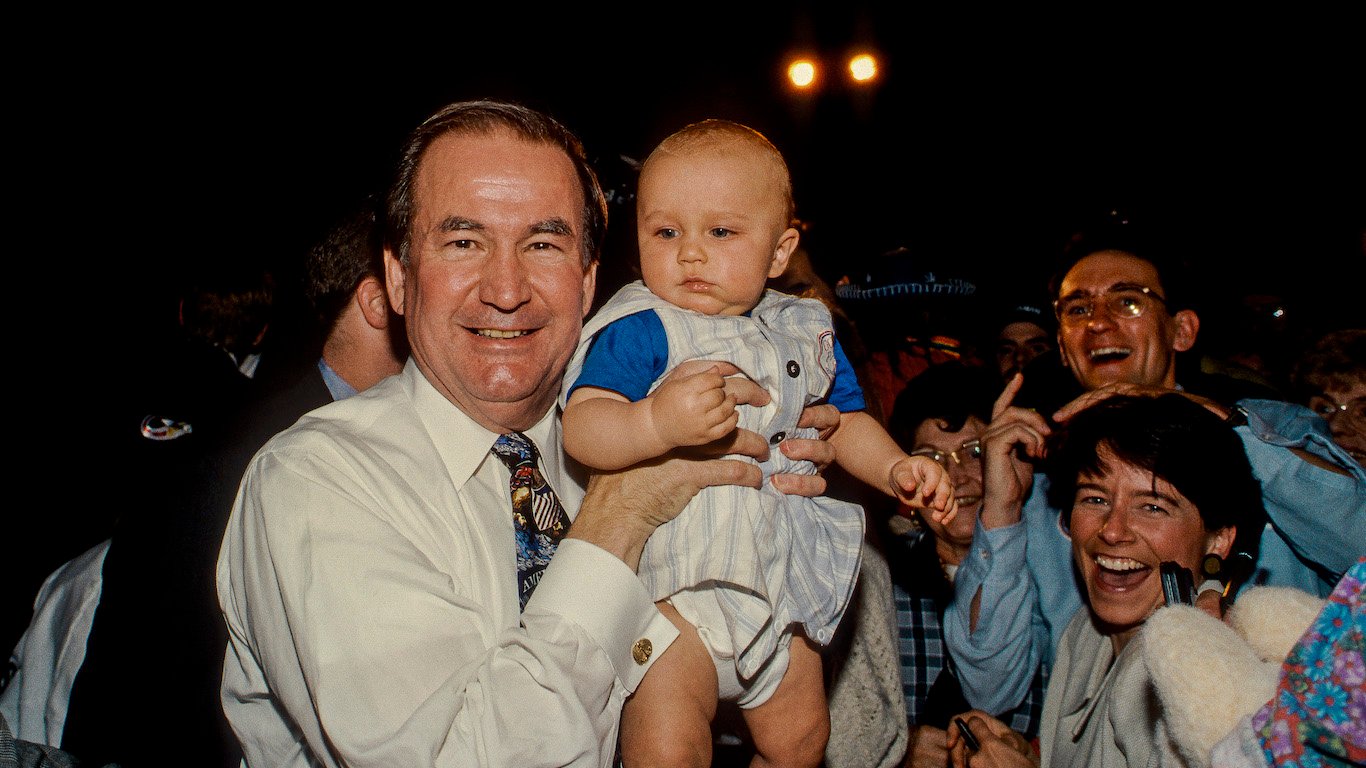
Patrick J. Buchanan
> Share of votes: 3.7% (3,347)
New Hampshire voters are known for their independent streak, and some voters crossed over to vote for far-right Republican candidate Pat Buchanan in the Democratic primary in 1996, and he finished second to President Bill Clinton.
2000 New Hampshire Democratic primary

Al Gore
> Share of votes: 49.7% (76,897)
Vice President Al Gore was considered a shoo-in to win the Democratic Party nomination in 2000, but he received a challenge from the left from former New Jersey Sen. Bill Bradley. Gore would win every primary and caucus during the 2000 campaign, though New Hampshire would be the closest, with Gore winning by about 4 points. Gore would get the nomination but lose the election to Gov. George W. Bush in one of the tightest elections in American history.
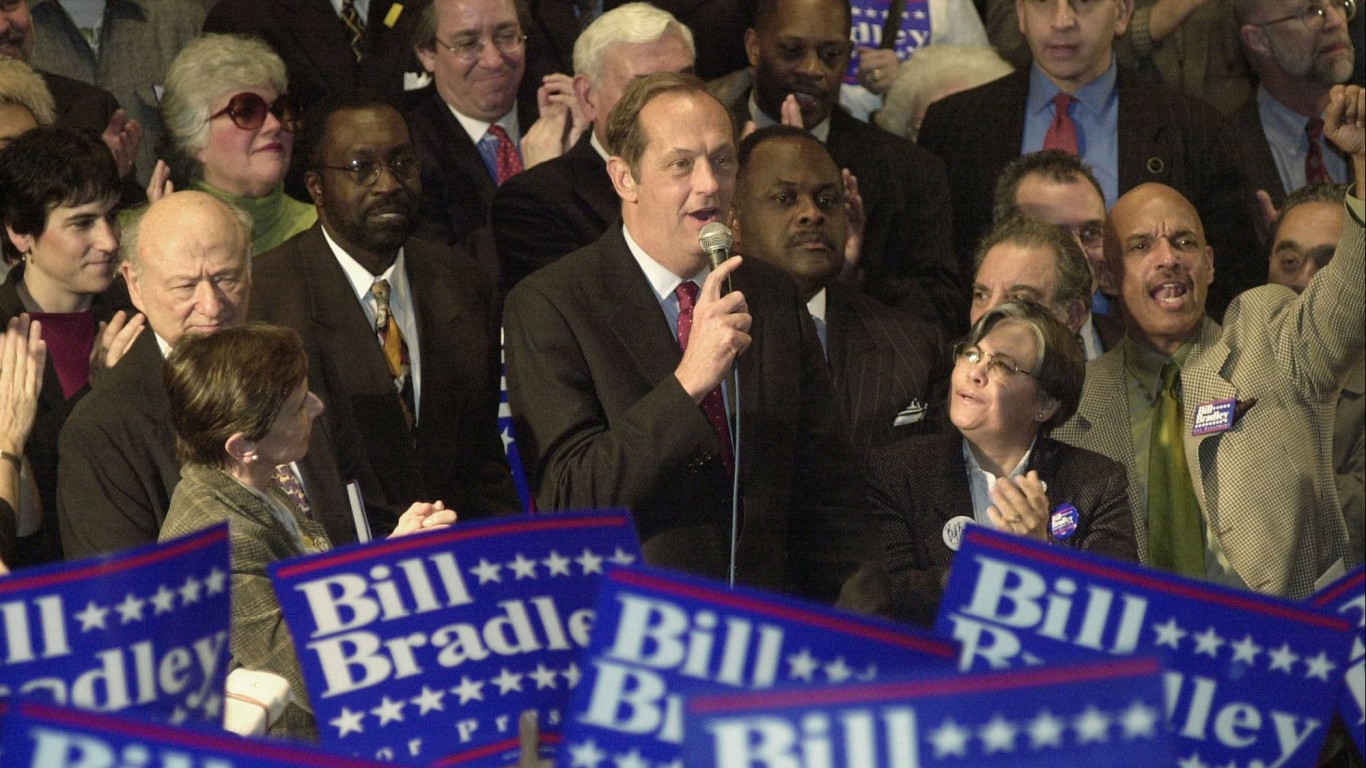
Bill Bradley
> Share of votes: 45.6% (70,502)
Former New Jersey senator and basketball star Bill Bradley challenged Al Gore for the Democratic Party nomination in 2000. He lost every primary, including the New Hampshire contest, and dropped out in March.
2004 New Hampshire Democratic primary

John F. Kerry
> Share of votes: 38.4% (84,377)
John Kerry followed the well-worn path to the Democratic primary trail by Massachusetts politicians John Kennedy, Michael Dukakis, Paul Tsongas, and Edward Kennedy. Kerry won the first seven primaries or caucuses in convincing fashion and topped a six-person field in New Hampshire. Kerry, campaigning on his Vietnam War experience, proved unstoppable on his way to the Democratic nomination. President George W. Bush defeated him in the 2004 election.
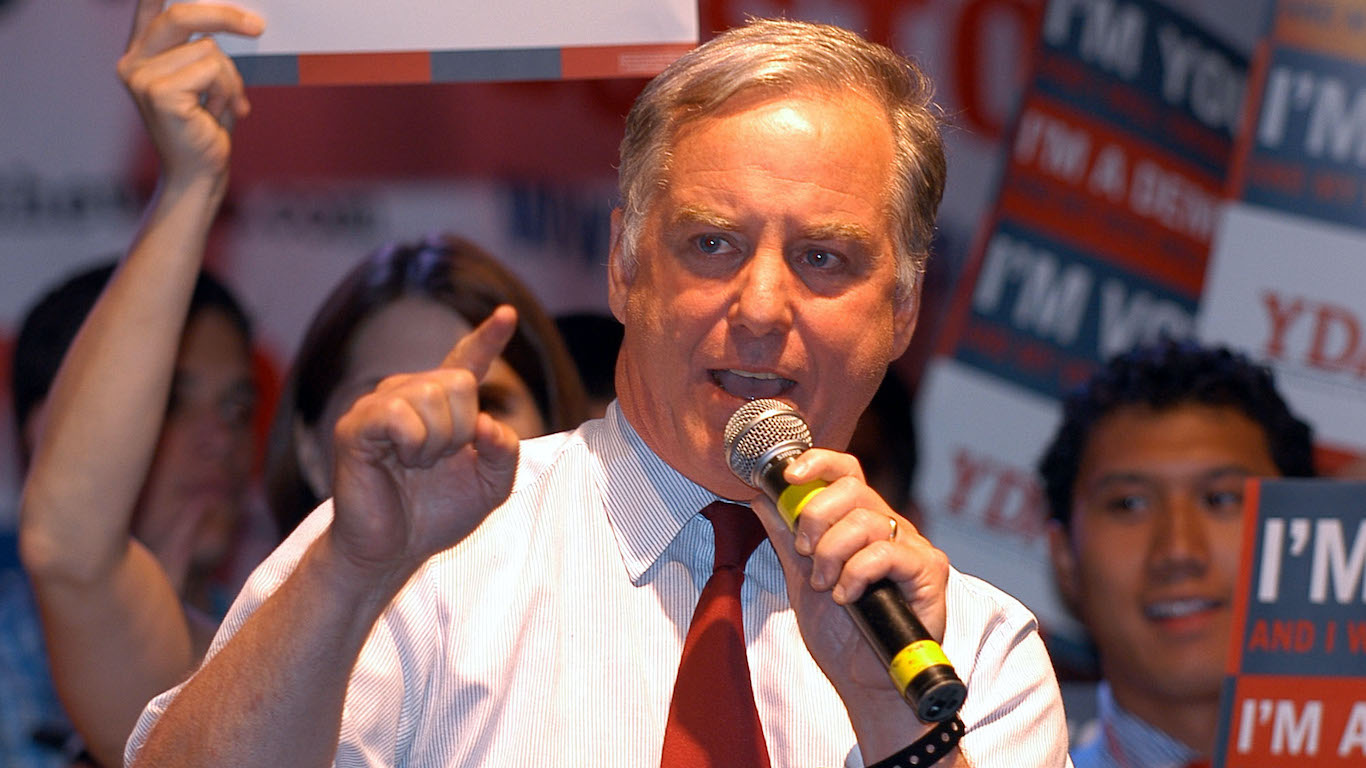
Howard Dean
> Share of votes: 26.3% (57,761)
Physician and former Vermont Gov. Howard Dean ran an anti-Iraq war theme and galvanized many on the left. However, his campaign foundered after a disappointing third-place finish in Iowa, remembered for his awkward “Dean scream” speech meant to energize supporters. Dean finished second in New Hampshire and dropped out in February.
[in-text-ad]
2008 New Hampshire Democratic primary
Hillary Clinton
> Share of votes: 39.1% (112,404)
New York Sen. Hillary Clinton, bidding to become the first woman nominated by a major political party, won the New Hampshire primary over Barack Obama, a first-term senator from Illinois. Clinton would wage a bruising primary battle with Obama throughout 2008 and eventually lose the nomination to Obama, who would go on and make history as the first African American president of the United States. Obama would appoint Clinton as secretary of state.
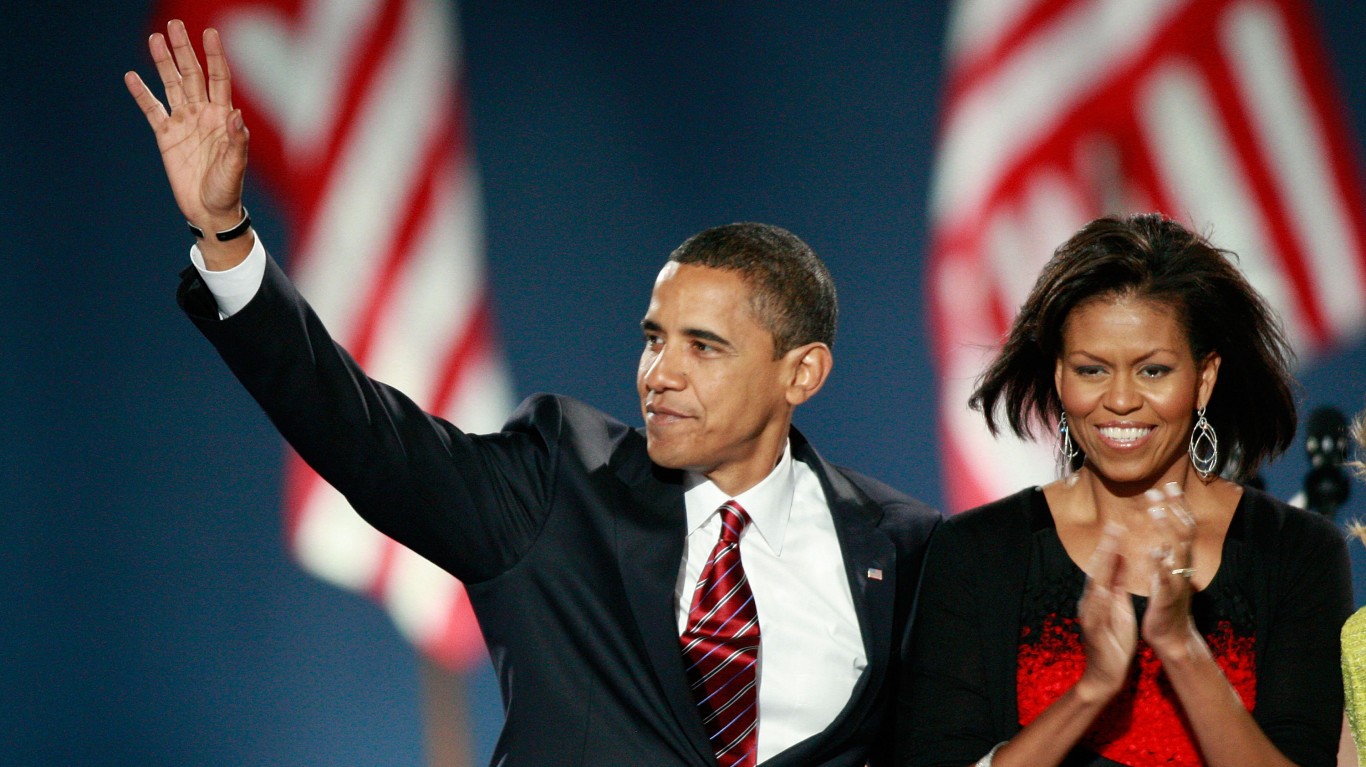
Barack Obama
> Share of votes: 36.5% (104,815)
Barack Obama, a first-term senator from Illinois, campaigned on “hope and change” and almost upset New York Sen. Hillary Clinton in the New Hampshire primary. His campaign gained traction, and in a grueling primary battle he emerged victorious and would go on to defeat John McCain in 2008 for the presidency and become the first African American president of the United States.
2012 New Hampshire Democratic primary
[in-text-ad]
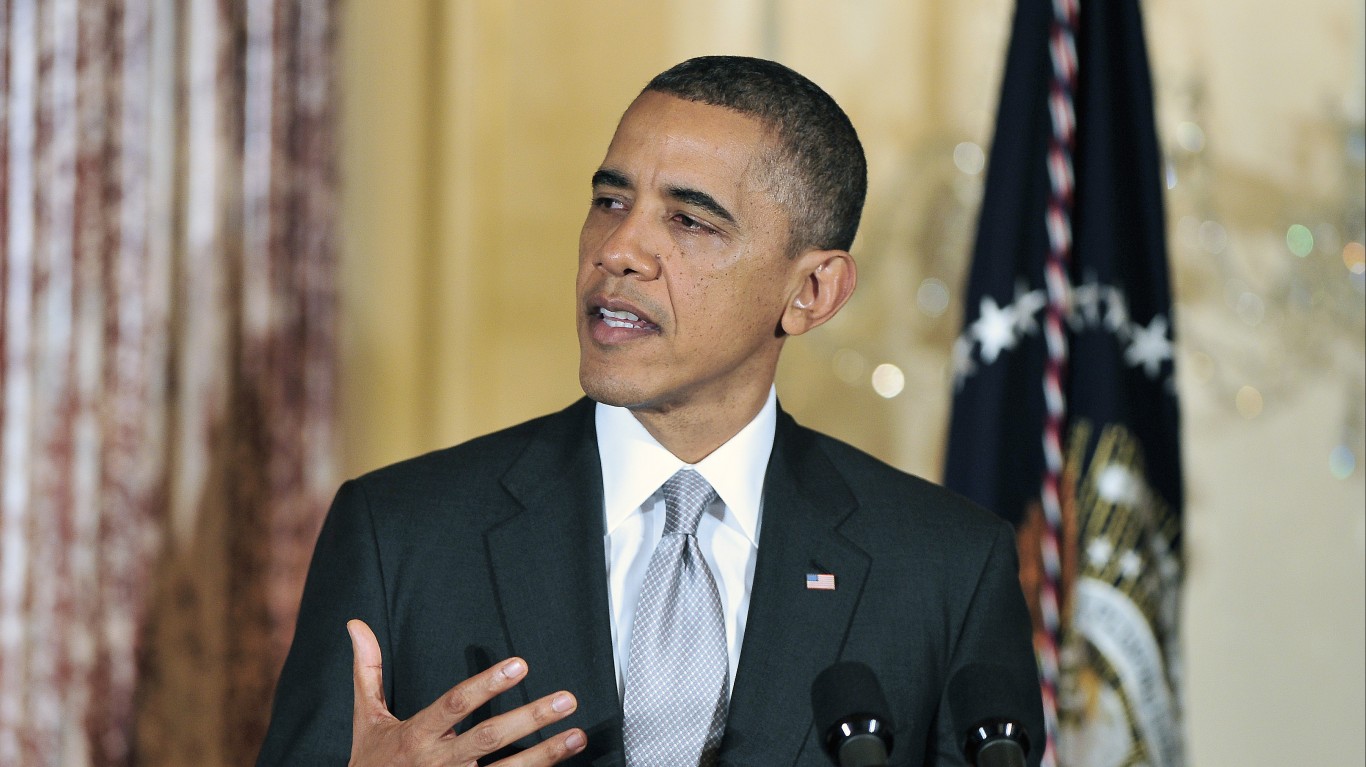
Barack Obama
> Share of votes: 80.9% (49,080)
President Barack Obama ran almost unopposed in securing the Democratic Party nomination. He was re-elected president of the United States by defeating former Massachusetts Gov. Mitt Romney.
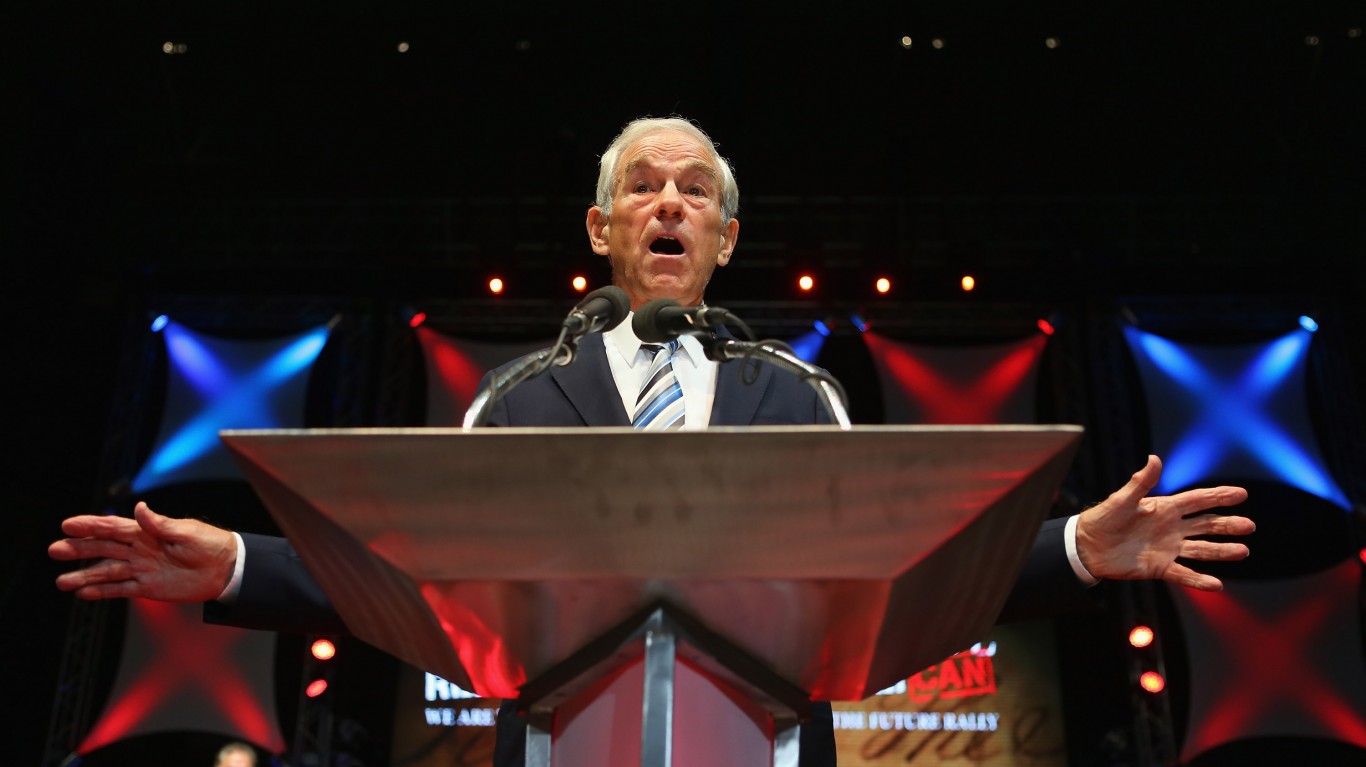
Ron Paul
> Share of votes: 3.8% (2,289)
President Barack Obama faced little opposition in his bid for re-election in 2012, and Ron Paul, a Republican from Texas, received the second-most votes as some Democratic voters crossed over to vote for the Republican.
2016 New Hampshire Democratic primary
Bernie Sanders
> Share of votes: 60.1% (152,193)
Bernie Sanders, the long-serving senator from Vermont and self-styled Democratic Socialist, used momentum from his surprisingly strong showing in the Iowa caucuses to resoundingly beat former Secretary of State Hillary Clinton in New Hampshire. Sanders would win 23 primaries and caucuses in 2016 before conceding defeat in June.
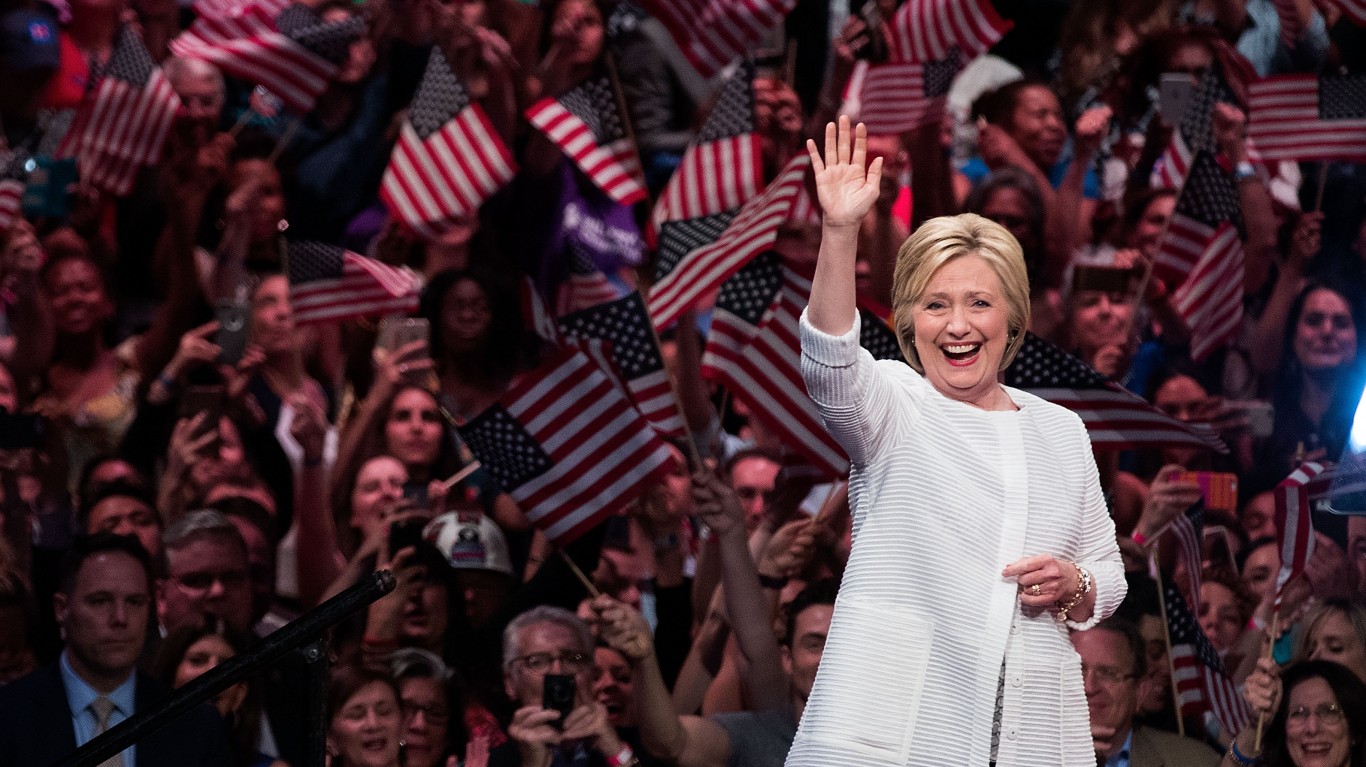
Hillary Clinton
> Share of votes: 37.7% (95,355)
New York Sen. Hillary Clinton made another attempt at becoming the first woman to be elected president. She faced a strong challenge from far-left leaning Bernie Sanders, the senator from Vermont, who won the New Hampshire primary easily. Sanders would prove that his victory was no fluke, winning 23 contests. Clinton won the most populous states and the nomination.
1972 New Hampshire Republican primary
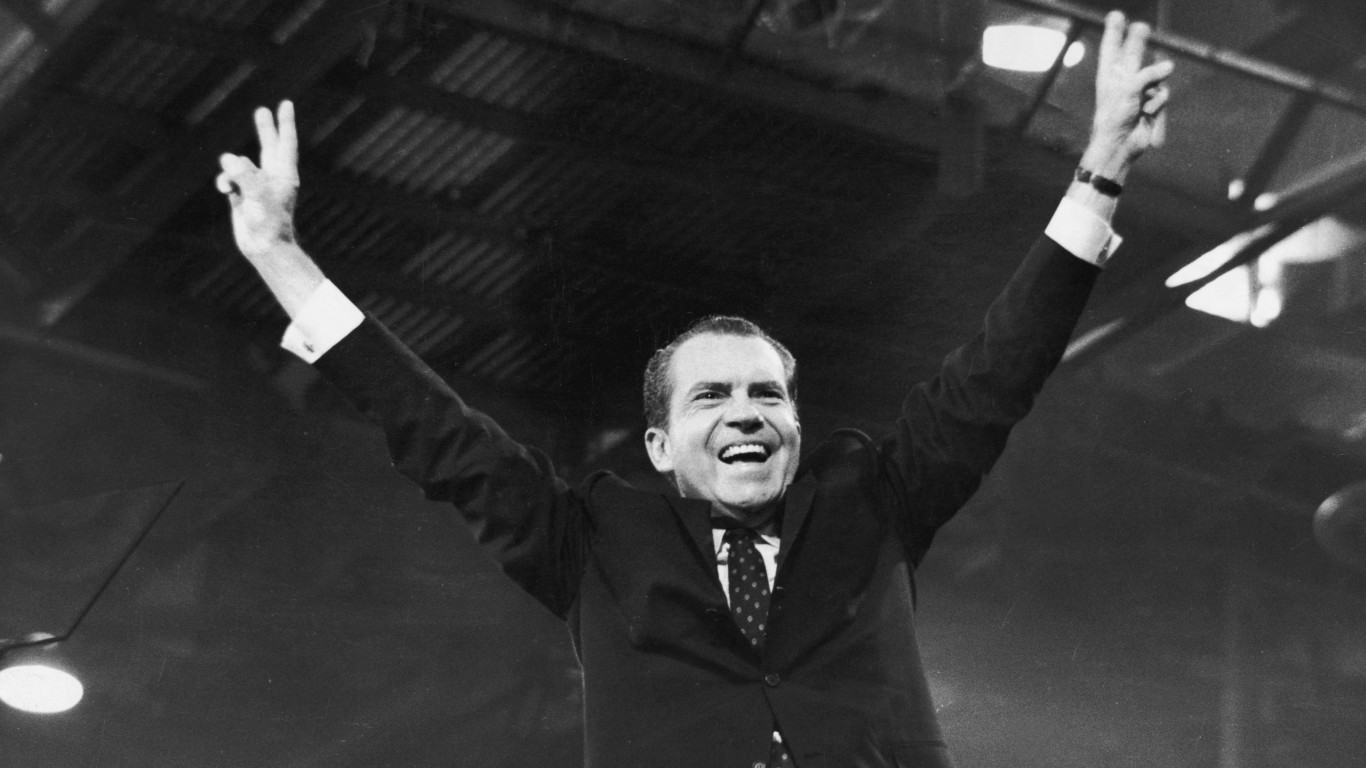
Richard Nixon
> Share of votes: 67.6% (totals not available)
Richard Nixon began his road to re-election by easily winning the New Hampshire primary. Nixon would get the nomination and then win a landslide 49-state victory over George McGovern in 1972.
[in-text-ad]
Pete McCloskey
> Shares of votes: 19.8% (totals not available)
Rep. Pete McCloskey from California ran as an anti-war candidate and finished second in the New Hampshire primary. He was never a serious challenger to incumbent Richard Nixon.
1976 New Hampshire republican Primary

Gerald Ford
> Share of votes: 49.4% (totals not available)
Gerald Ford, who became president after Richard Nixon resigned in 1974, barely beat former California Gov. Ronald Reagan in the New Hampshire primary. Ford won the early primaries and had to hold back a strong challenge from Reagan, who took his campaign to the Republican National Convention before Ford secured the nomination on the first ballot. Ford, dogged by his pardon of Nixon, would go on to lose the 1976 election to Jimmy Carter.
[in-text-ad]
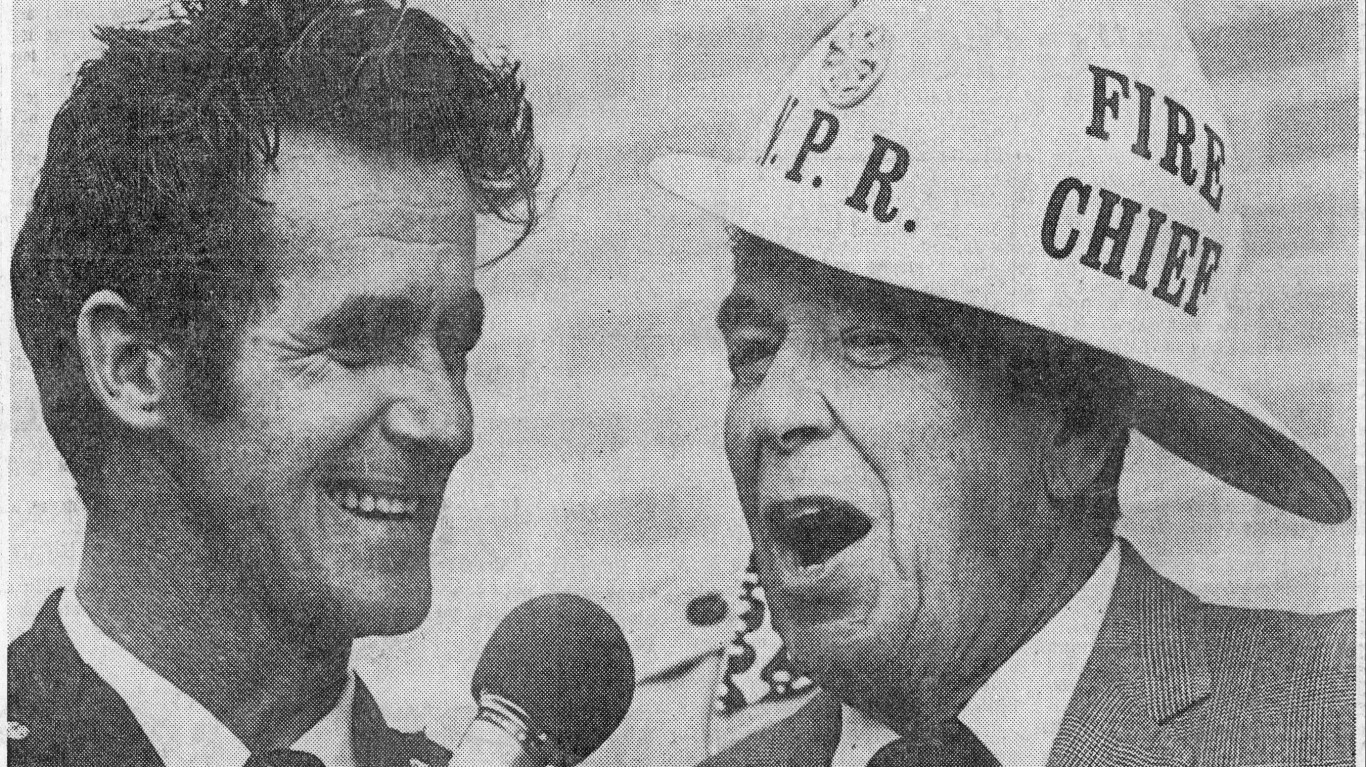
Ronald Reagan
> Share of votes: 48.0% (totals not available)
Ronald Reagan, leading the conservative wing of the Republican Party, lost a close contest in New Hampshire, which would be the harbinger of their battle for the Republican nomination. After Ford won the early primaries, Reagan won the North Carolina primary and would mount the strongest challenge to any incumbent since Teddy Roosevelt’s challenge to President William Howard Taft in 1912. Reagan took his conservative crusade to the convention, where he lost to Ford on the first ballot.
1980 New Hampshire Republican primary
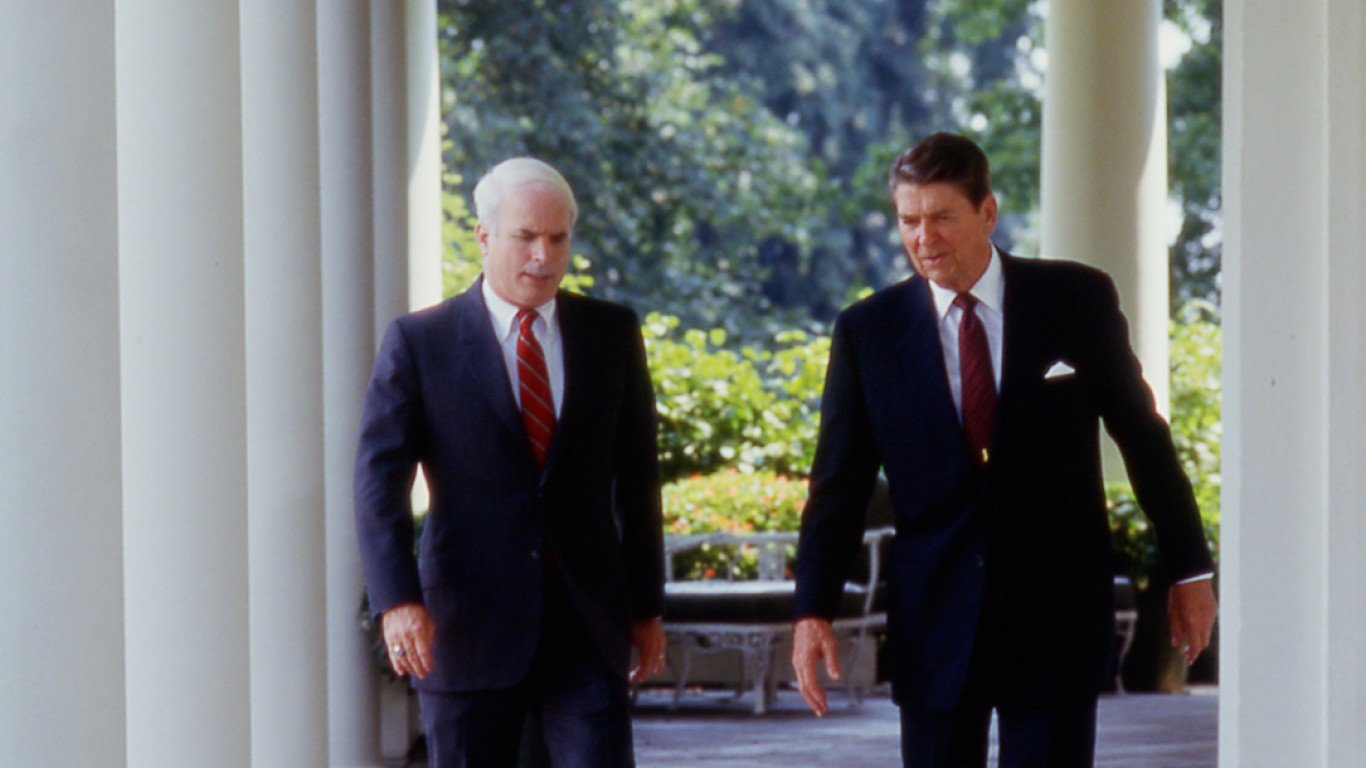
Ronald Reagan
> Share of votes: 50.0% ((totals not available)
Former California Gov. Ronald Reagan, the conservative standard-bearer who almost won the Republican nomination four years earlier, emerged victorious in New Hampshire out of a field of seven candidates, with about 50% of the vote. The win would put Reagan on the path to the Republican nomination and eventually to a convincing victory over President Jimmy Carter, becoming the oldest man to be elected president at that time at 69 years old.
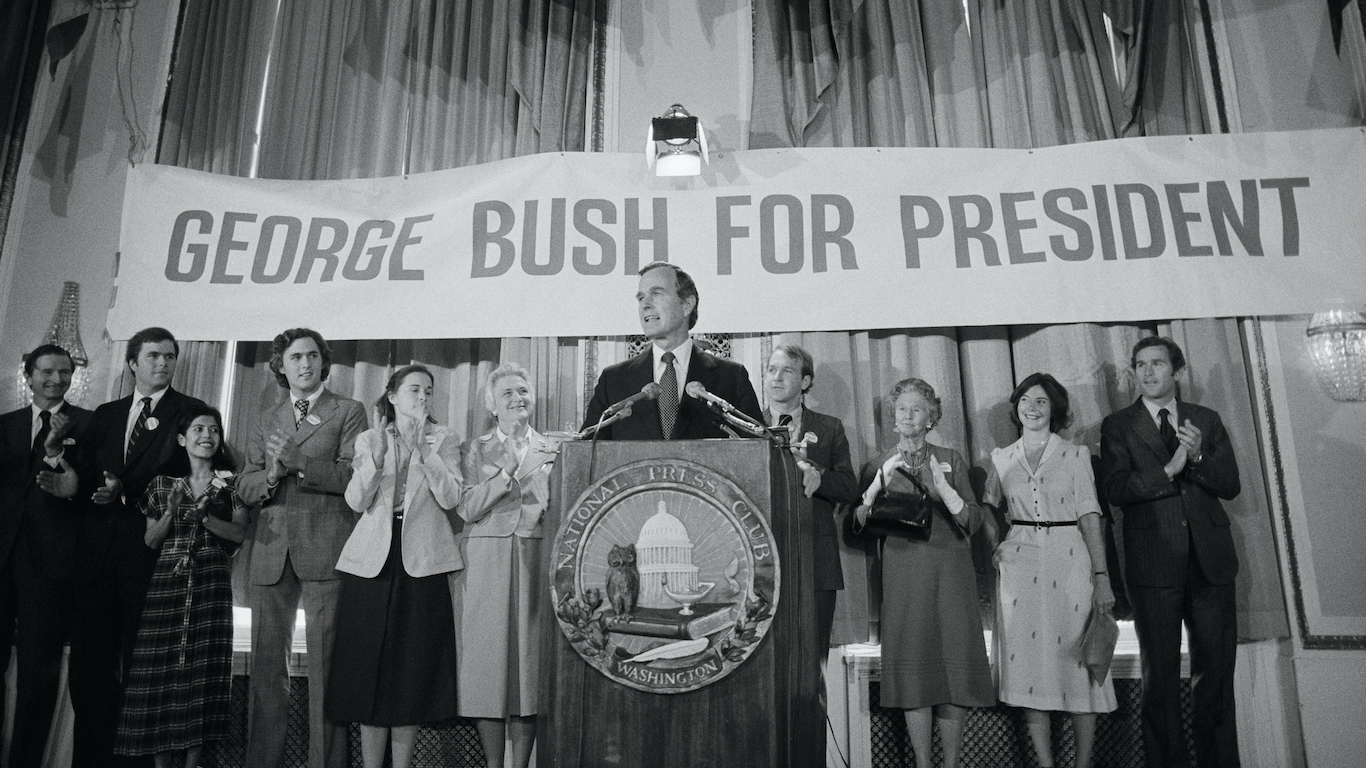
George H.W. Bush
> Share of votes: 23.0% (totals not available)
Former Texas congressman and ambassador to the United Nations George H.W. Bush ran as a more pragmatic Republican in opposition to Ronald Reagan’s conservative message. Bush had won the Iowa caucuses but foundered in New Hampshire. Bush would win seven primaries as Reagan secured the nomination. Reagan would put Bush on the ticket as vice president and they won the 1980 election.
1984 New Hampshire Republican primary
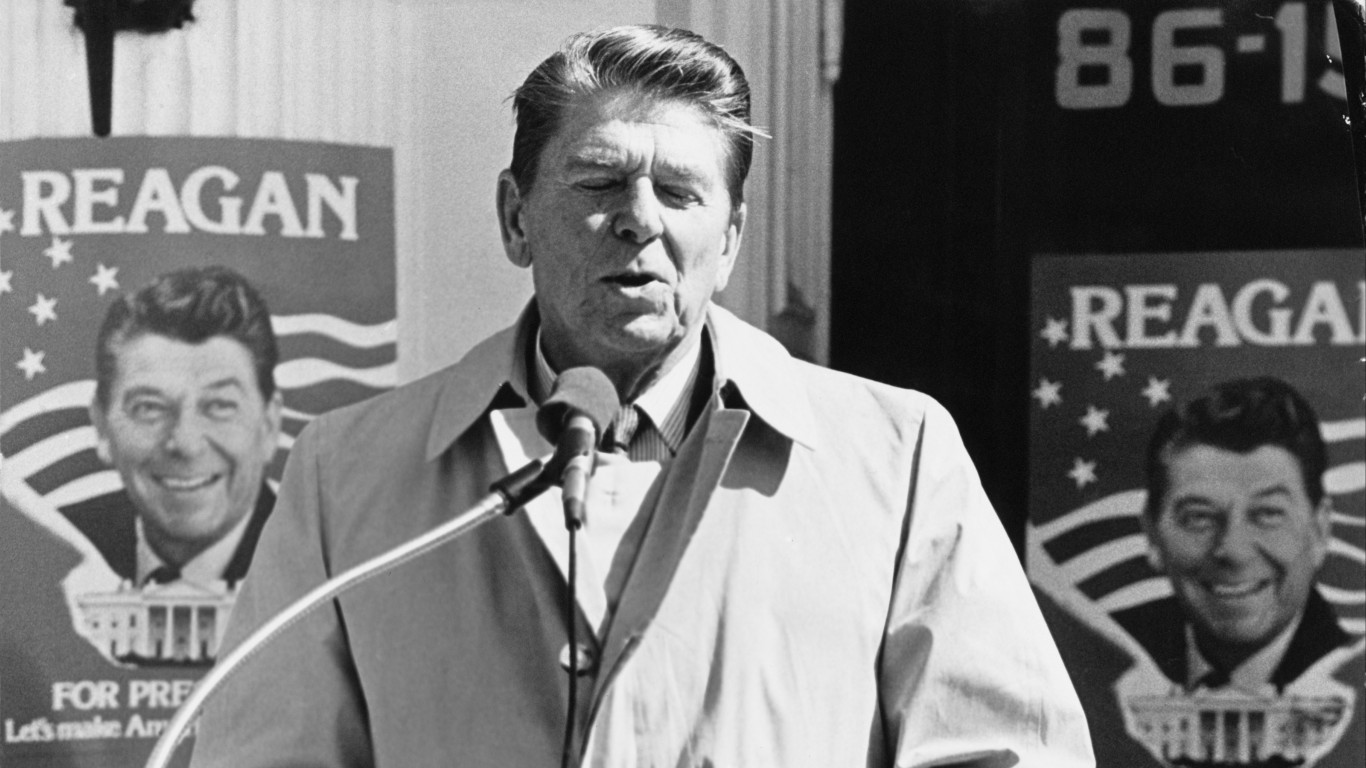
Ronald Reagan
> Shares of votes: 86.42%
President Ronald Reagan ran virtually unopposed for the Republican nomination. He would rout former Vice President Walter Mondale in the general election, winning every state but Minnesota and also the District of Columbia.
[in-text-ad-2]
1988 New Hampshire Republican primary
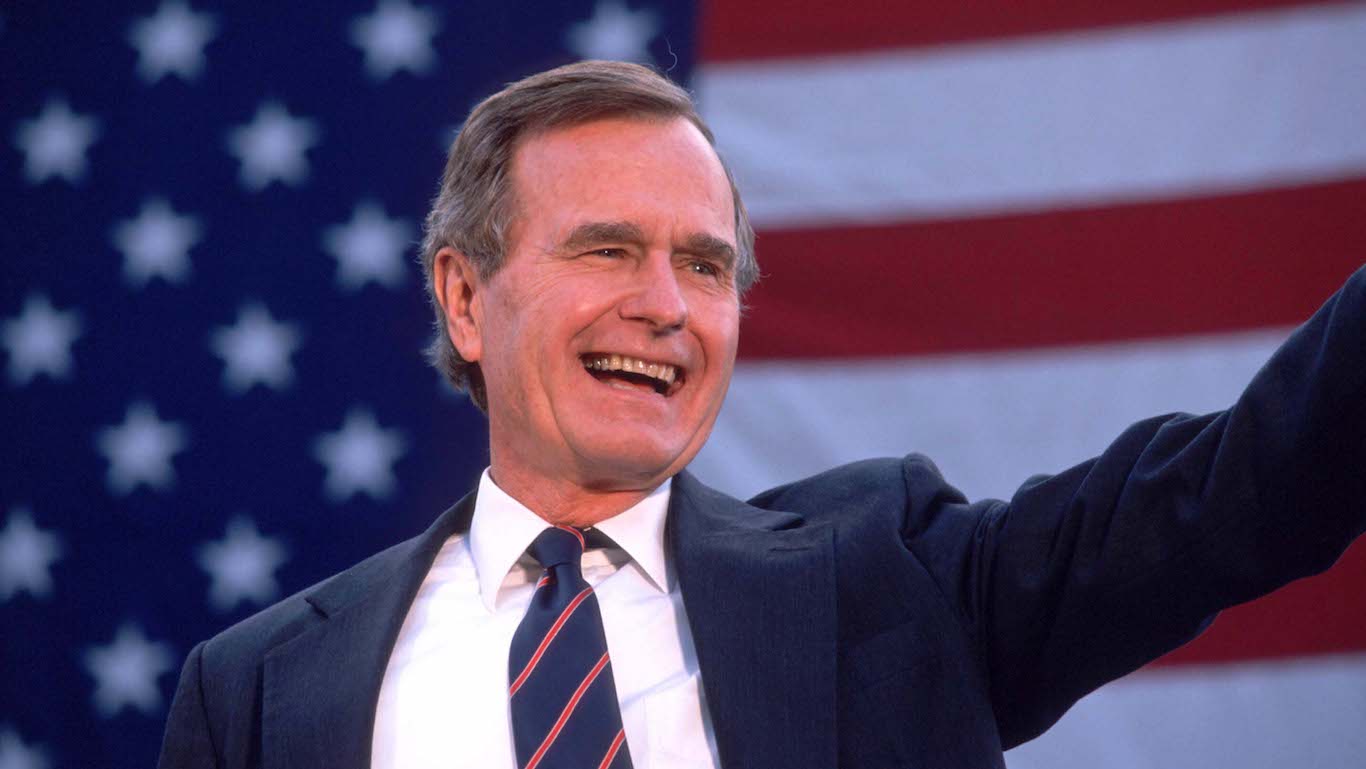
George H.W. Bush
> Share of votes: 38.0% (54,915)
Vice President George H.W. Bush began his quest to retain Republican control of the White House by winning the Michigan primary before triumphing in New Hampshire, turning back Kansas Sen. Bob Dole, who had won the Iowa caucuses. Bush secured the nomination with a sweep of the primaries on Super Tuesday, March 8, and easily won the nomination. He then routed Massachusetts Gov. Michael Dukakis in the election in 1988 to become the nation’s 41st president.
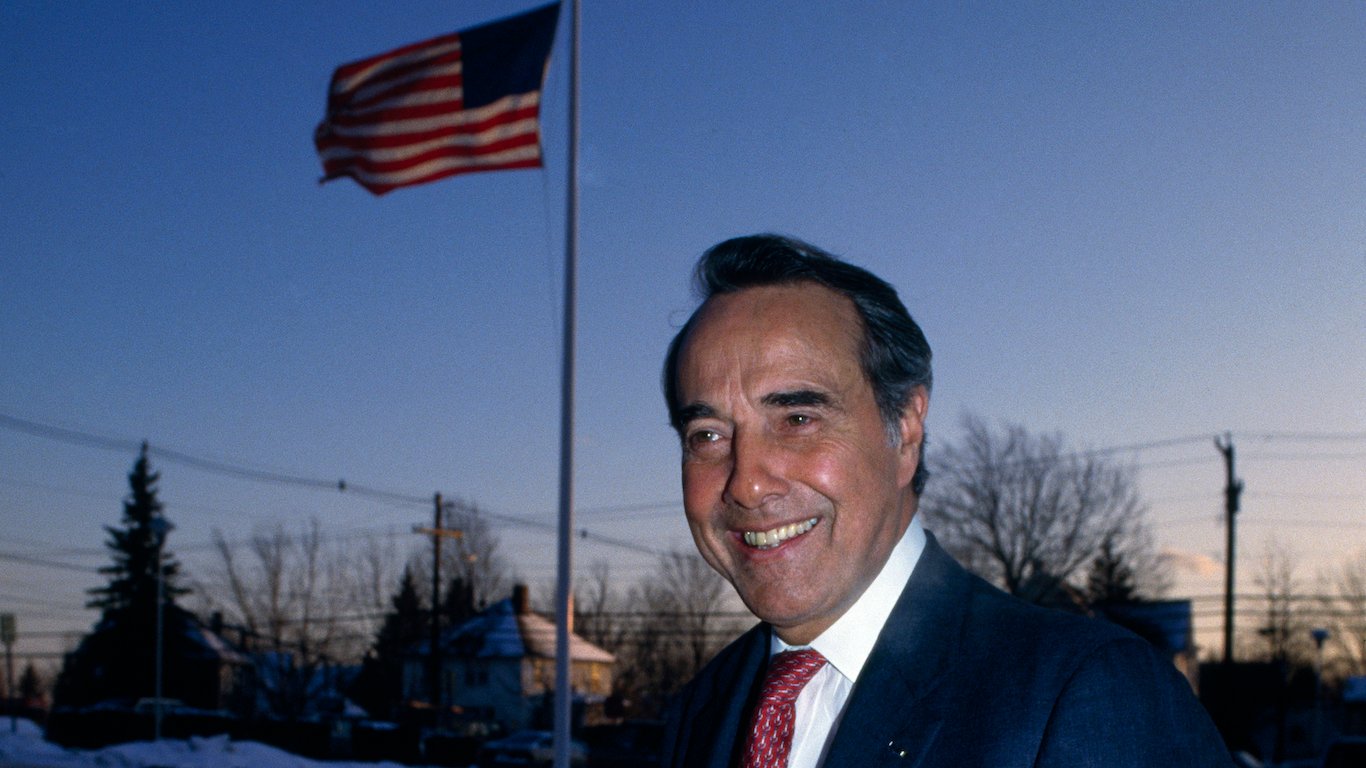
Bob Dole
> Share of votes: 29.0% (41,746)
Kansas Sen. Bob Dole, a war hero with a reputation as a Republican street fighter, finished second in the New Hampshire primary after winning the Iowa caucuses. He won four primaries, including his own state, but Bush easily won the nomination.
[in-text-ad]
1992 New Hampshire Republican primary
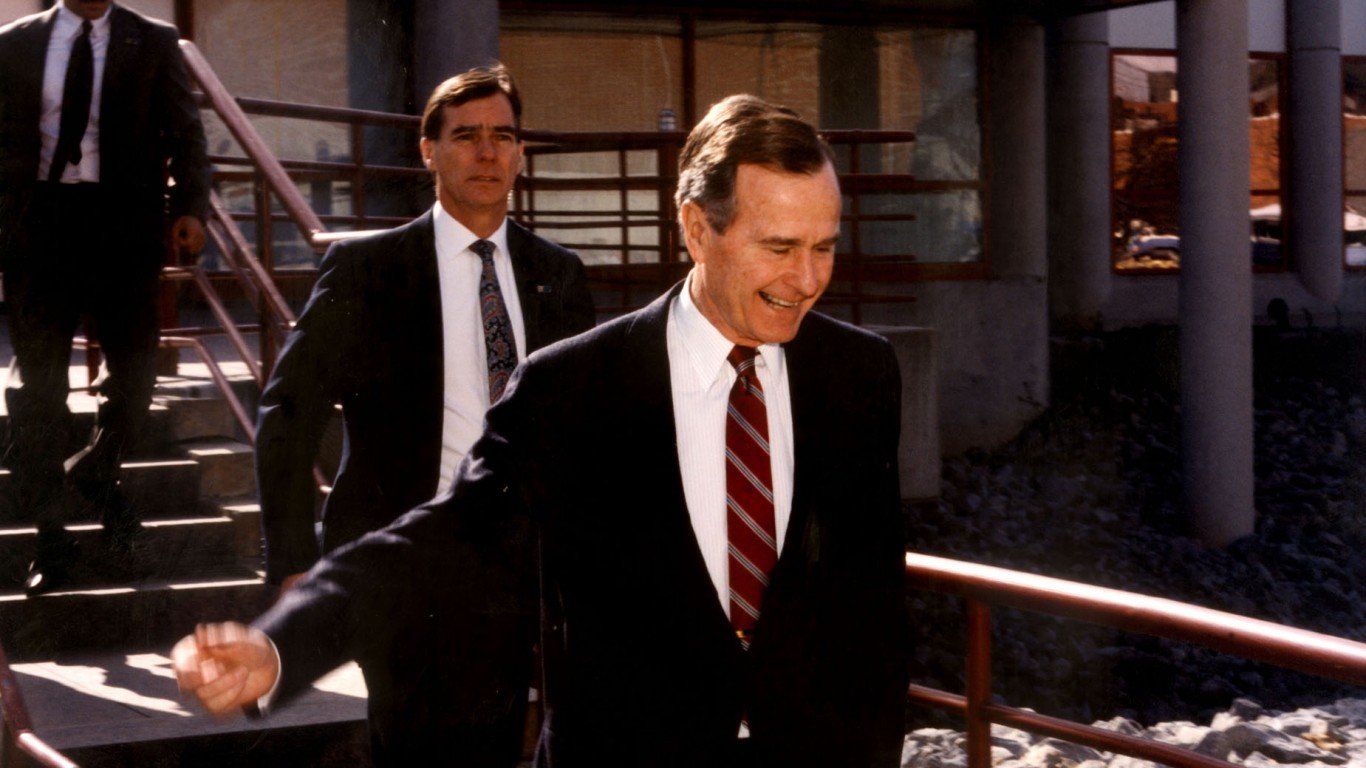
George H.W. Bush
> Share of votes: 53.0% (92,271)
President George H.W. Bush, seeking re-election, won the New Hampshire primary over a surprisingly strong showing from conservative candidate Pat Buchanan. Bush won all the primary and caucus contests and received the nomination. However, he lost the election to Bill Clinton.
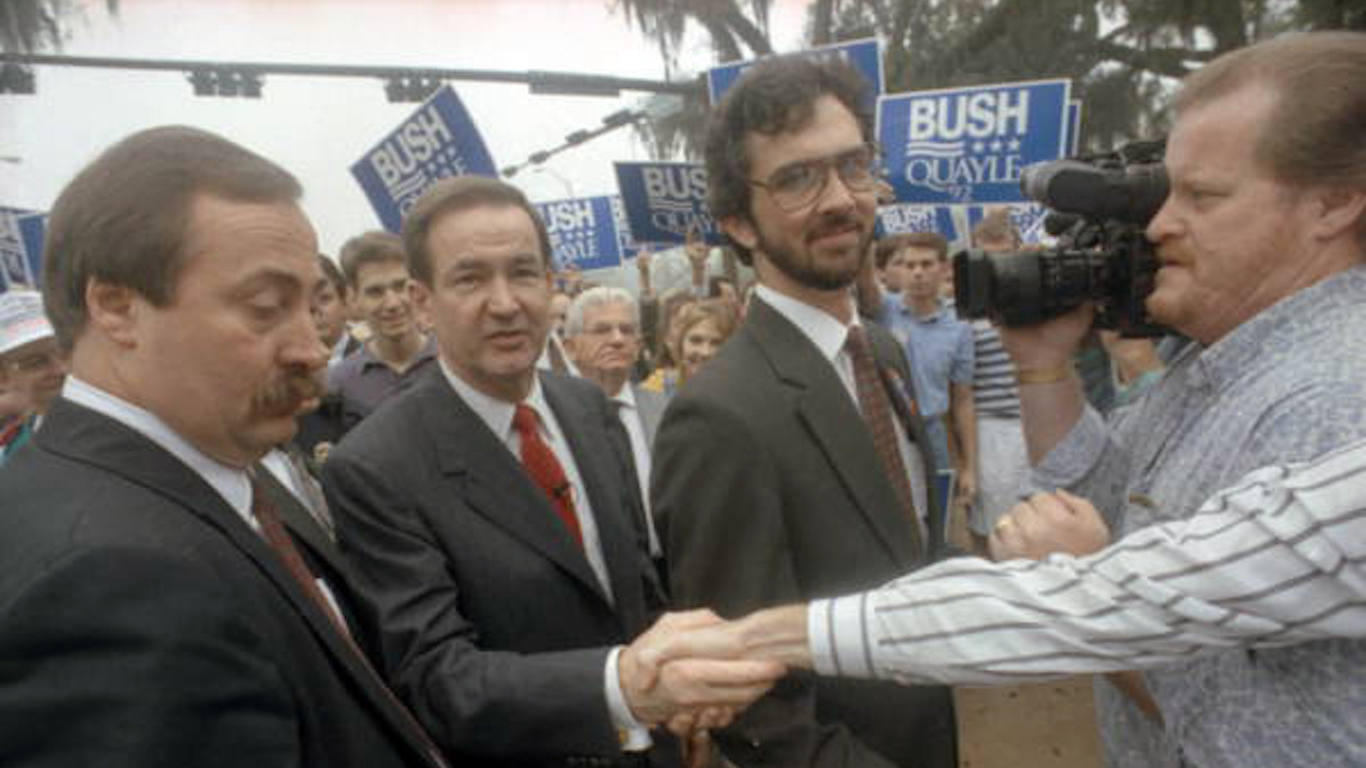
Patrick J. Buchanan
> Share of votes: 37.4% (65,106)
Conservative candidate Pat Buchanan made a challenge to President George H.W. Bush from the right. He failed to win any primaries but finished second in most of them, including New Hampshire.
1996 New Hampshire Republican primary

Patrick J. Buchanan
> Share of votes: 27.3% (56,874)
Conservative candidate Pat Buchanan returned to seek the Republican nomination in 1996 and edged Kansas Sen. Bob Dole in the New Hampshire primary. The momentum would be short-lived, however, as the far-right firebrand’s only other triumph after New Hampshire was at the Missouri caucuses.
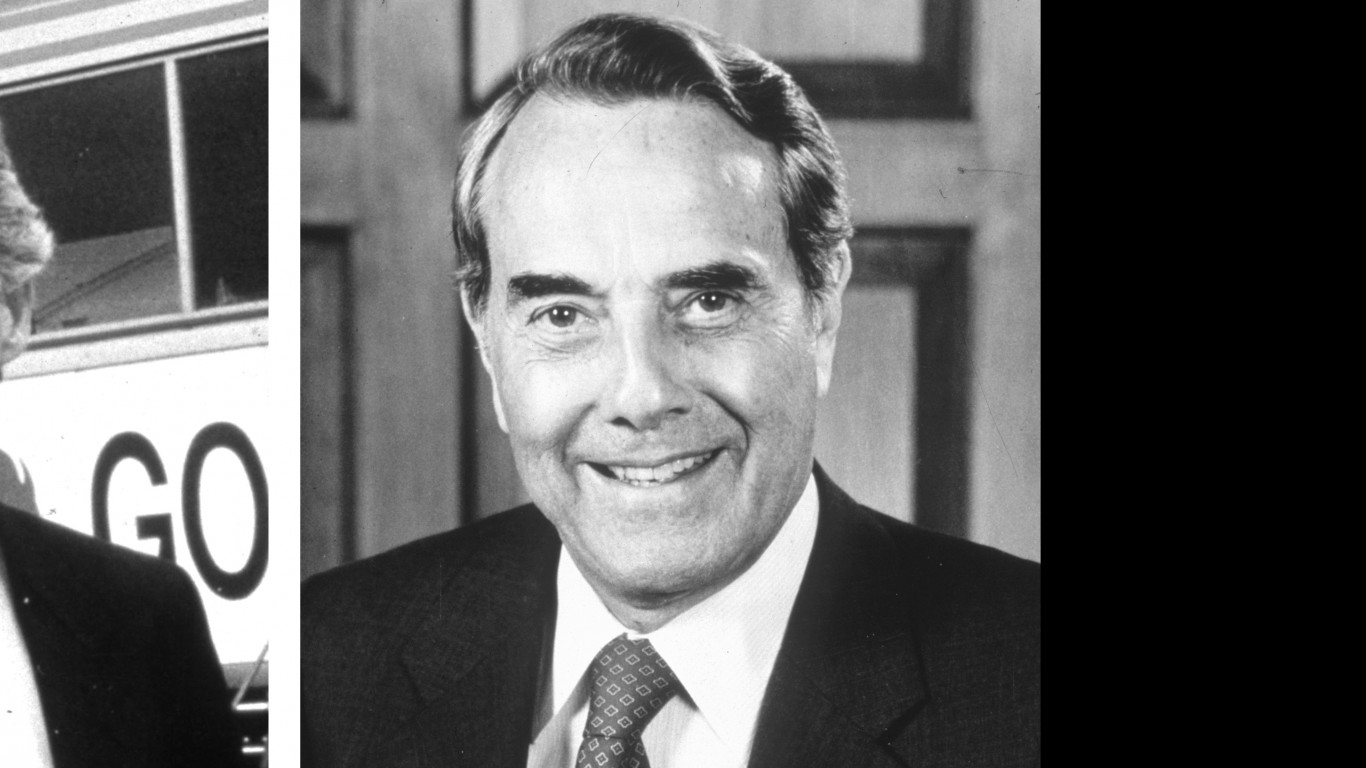
Bob Dole
> Share of votes: 26.2% (54,738)
Kansas Sen. Bob Dole finished a close second to conservative candidate Pat Buchanan in the New Hampshire primary. The political veteran and war hero regained his footing and swept the Super Tuesday contests on his way to the Republican nomination. He was beaten by President Bill Clinton in 1996.
[in-text-ad]
2000 New Hampshire Republican primary
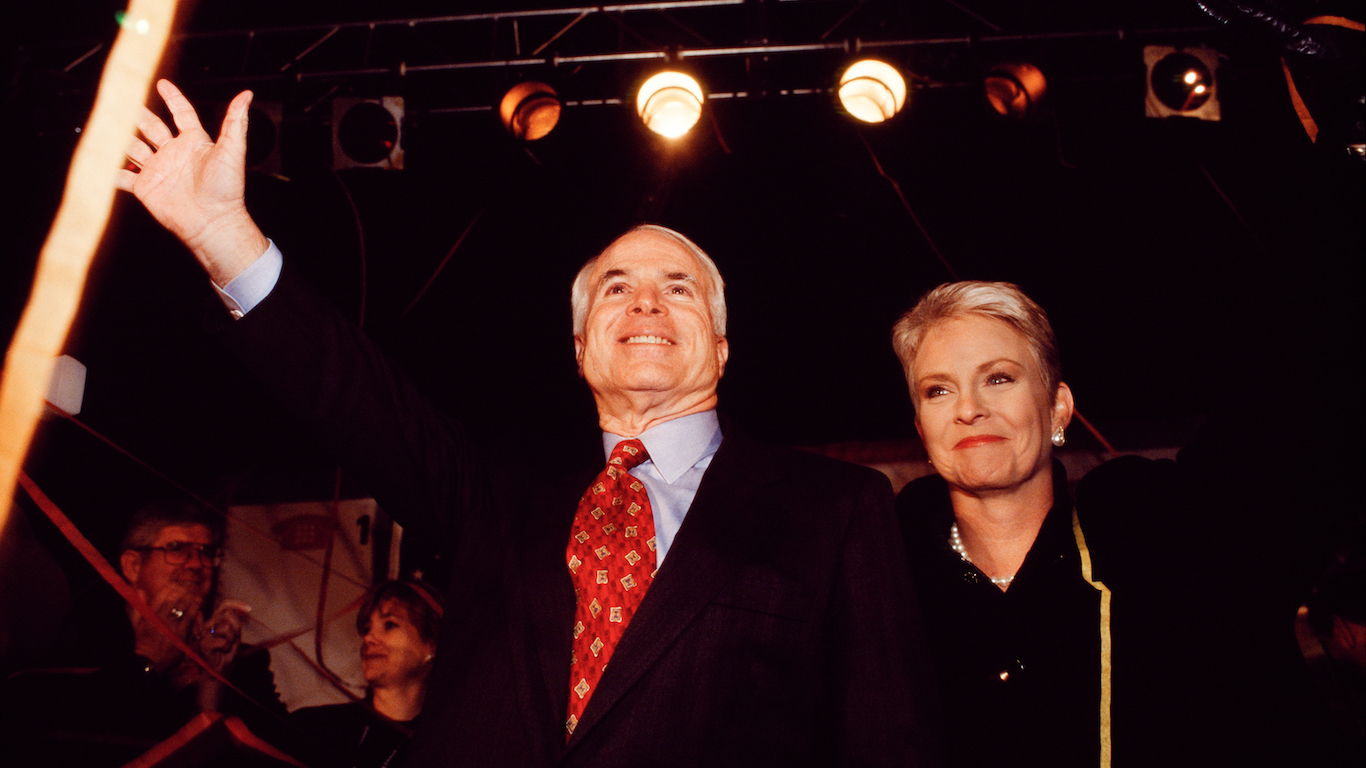
John McCain
> Share of votes: 48.5% (115,606)
Arizona Sen. John McCain, a former prisoner of war during the Vietnam War, made campaign finance reform an issue and won the New Hampshire primary over a field of six candidates. McCain won primaries in New England and Michigan and his own state of Arizona, but conservatives had their doubts about McCain and he could not secure the nomination.

George W. Bush
> Share of votes: 30.4% (72,330)
After triumphing in the Iowa caucuses, Texas Gov. George W. Bush faltered in New Hampshire. However, his campaign regained momentum after he won a bruising battle in the South Carolina primary over Arizona Sen. John McCain. Bush took control of the primary fight in March and won the GOP nomination, then edged Al Gore for the presidency in one of America’s closest elections.
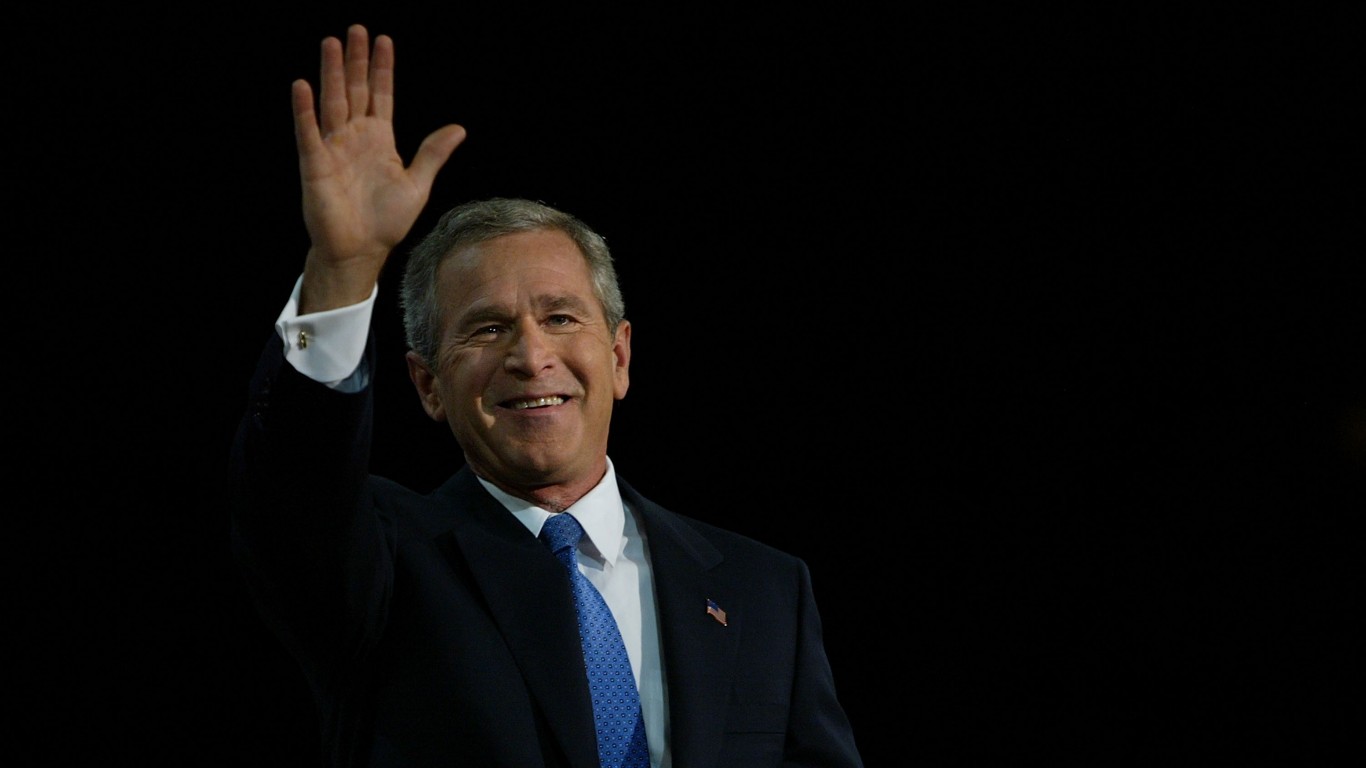
George W. Bush
> Share of votes: 79.8% (53,962)
President George W. Bush ran virtually unopposed for the nomination of the Republican Party and would go on to defeat John F. Kerry in the 2004 election.
[in-text-ad]

John Kerry
> Share of votes: 4.2% (2,819)
John Kerry received just over 4% of the Republican primary vote in New Hampshire as some voters crossed over to vote for the Massachusetts Democrat.
2008 New Hampshire Republican primary
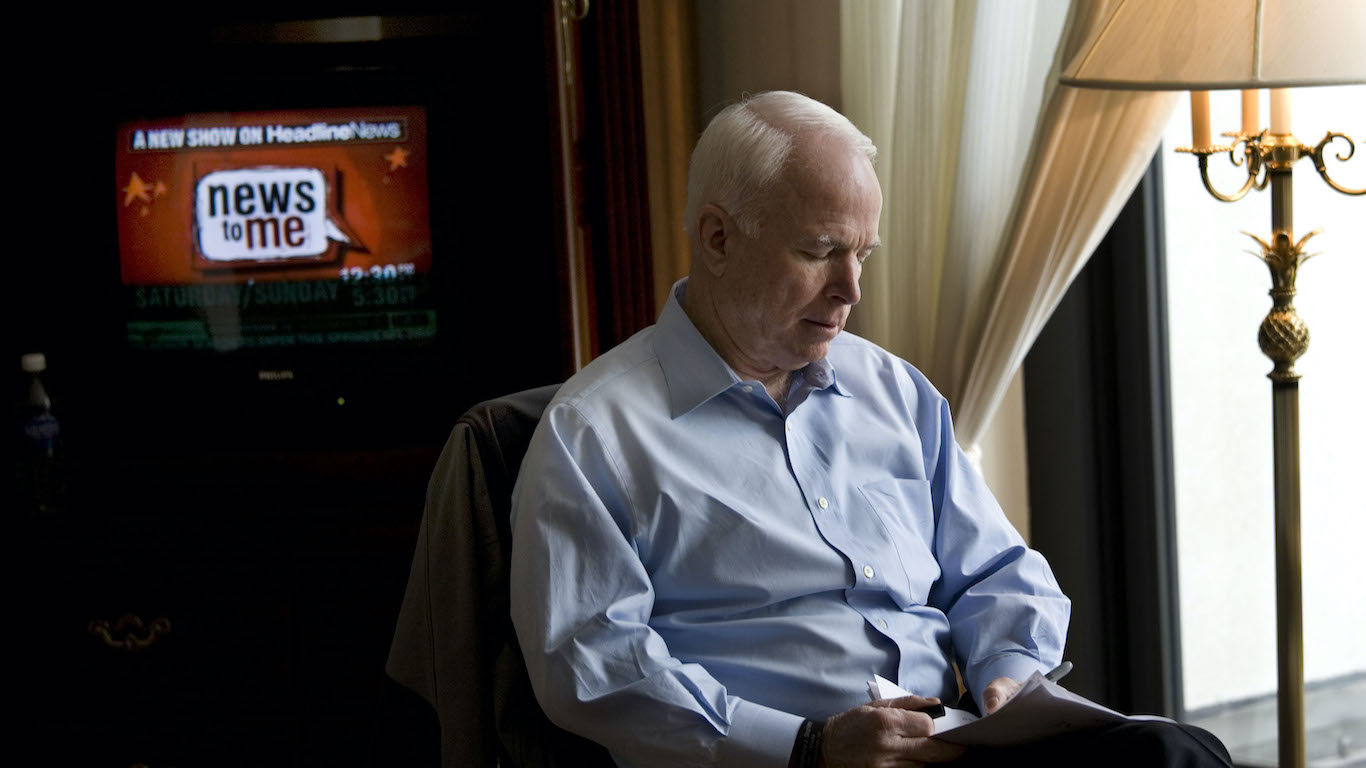
John McCain
> Share of votes: 37.0% (88,713)
Eight years after winning the New Hampshire primary, Arizona Sen. John McCain, repeated his success, turning back former Massachusetts Gov. Mitt Romney. McCain, courting a maverick and independent image, would win most of the Super Tuesday primaries enroute to getting the Republican Party nomination. He chose Sarah Palin as his running mate, the first woman to be named on the GOP ticket. McCain would lose the election to Barack Obama.
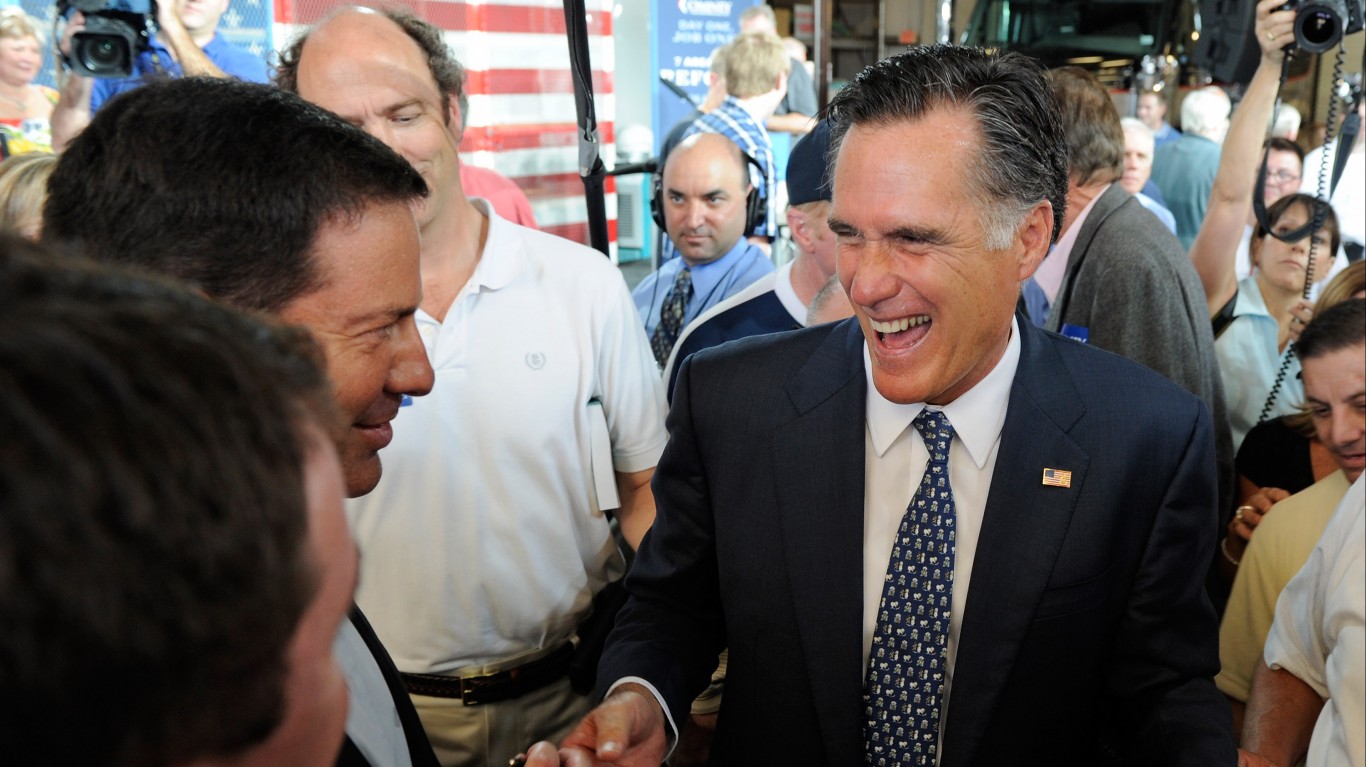
Mitt Romney
> Share of votes: 31.6% (75,675)
Former Massachusetts Gov. Mitt Romney finished second in the New Hampshire primary. He would win 11 contests, many of them in the Far West, including his home state of Utah. However, he fell short to Arizona Sen. John McCain, who won the most populous states.
2012 New Hampshire Republican primary
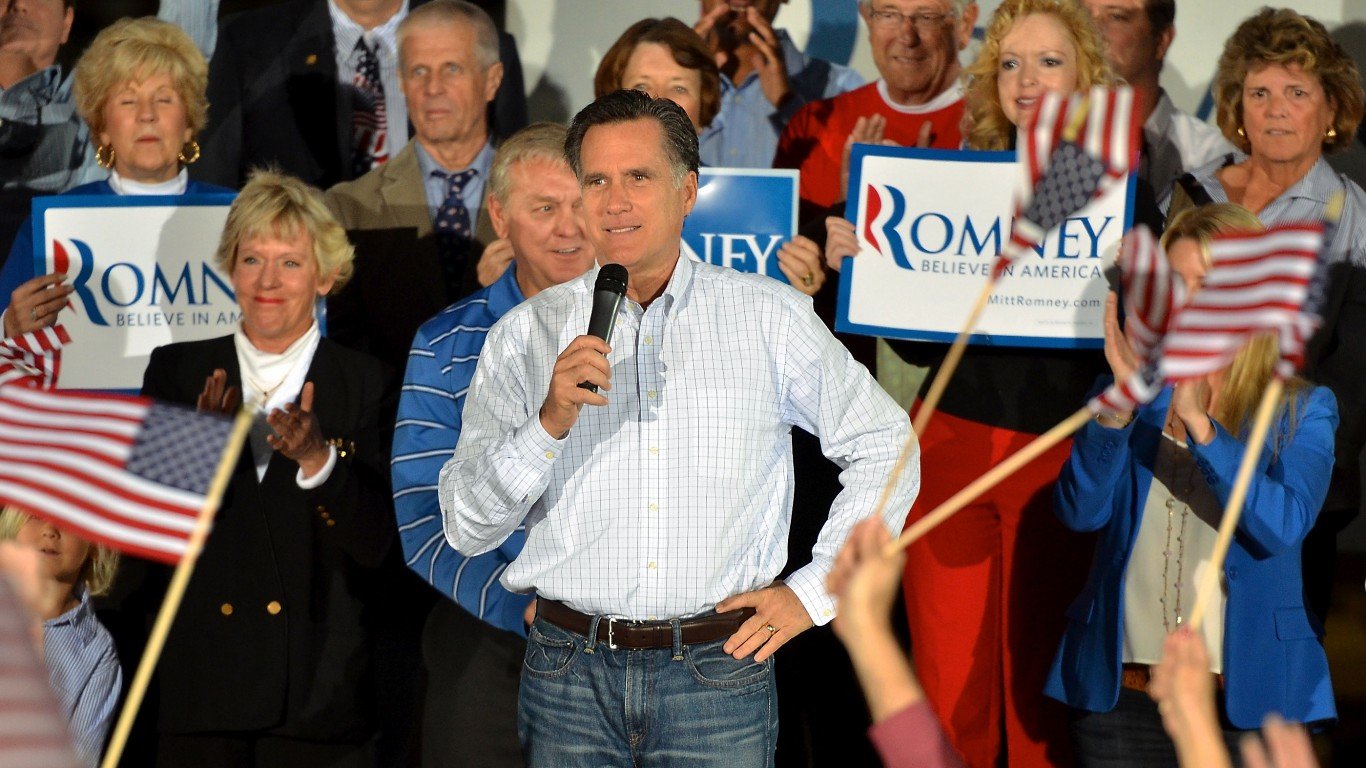
Mitt Romney
> Share of votes: 39.3% (97,591)
Former Massachusetts Gov. Mitt Romney defeated five rivals in the New Hampshire primary, avenging his loss from four years earlier. After Romney lost the South Carolina primary to Newt Gingrich, he won in Florida and started to roll up victories. He won the nomination but lost to President Barack Obama in the 2012 election.
[in-text-ad-2]
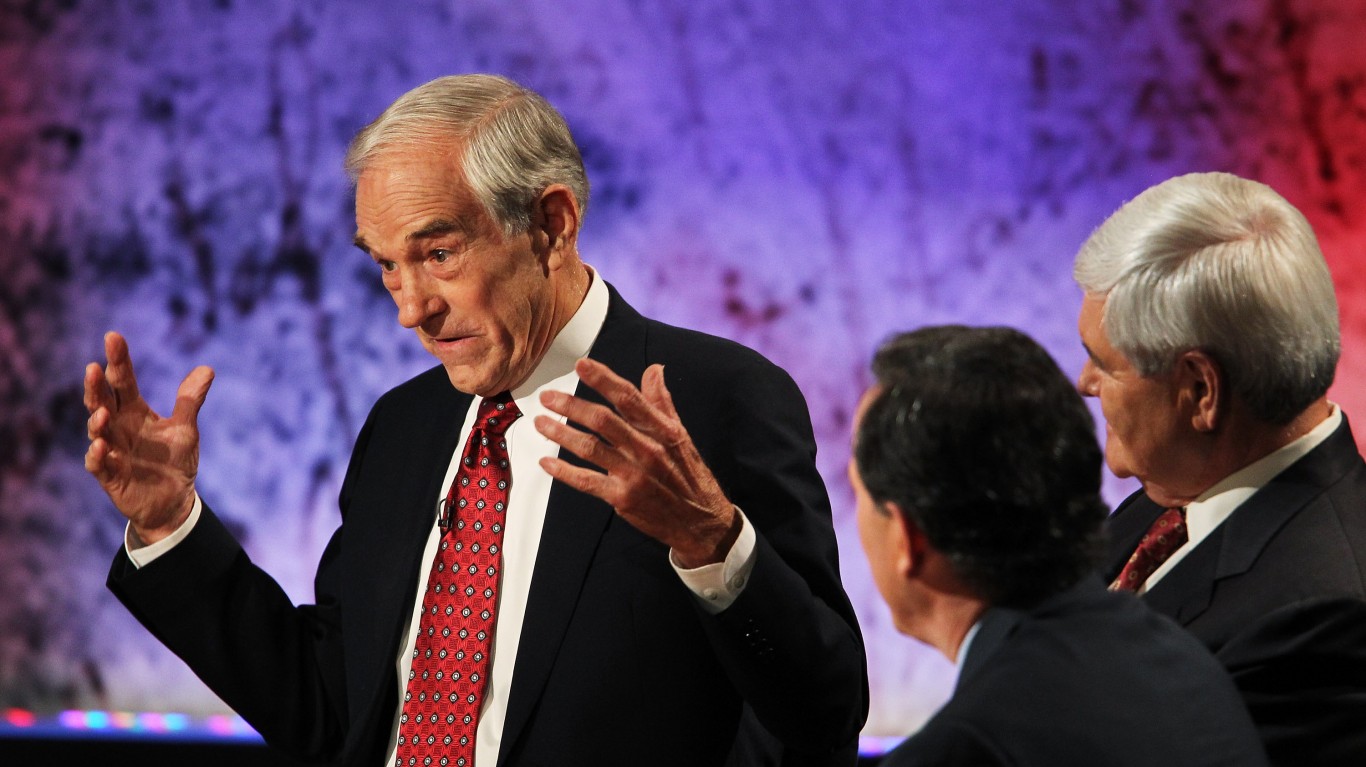
Ron Paul
> Share of votes: 22.9% (56,872)
Texas Rep. Ron Paul finished a distant second in the New Hampshire primary. He failed to win any states and suspended his campaign though he sought to influence the GOP platform at the Republican National Convention, where Mitt Romney won the nomination.
2016 New Hampshire Republican primary
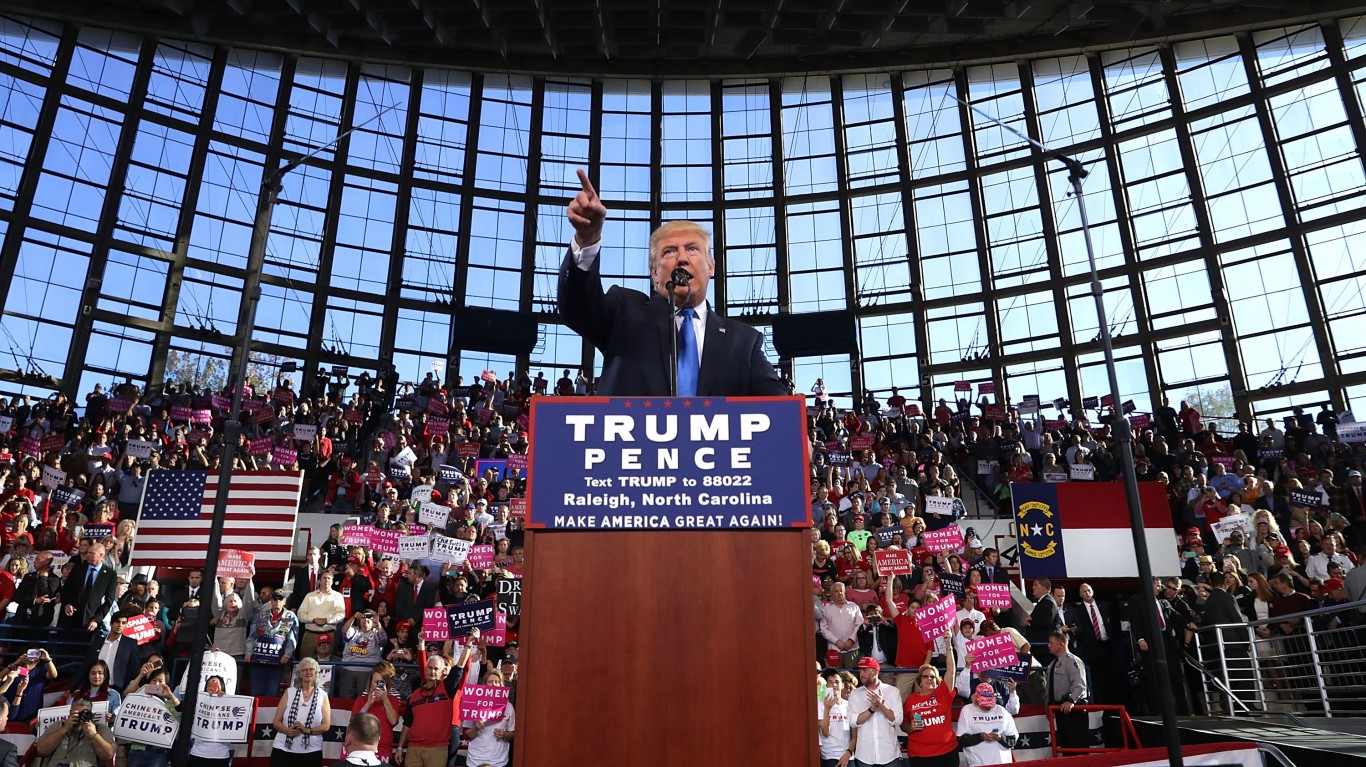
Donald J. Trump
> Share of votes: 35.2% (100,735)
Real estate mogul and reality television star Donald Trump began his unlikely presidential election by winning the New Hampshire primary. Trump would go on to defeat a field of 17 Republican candidates and win 41 contests. Trump upset former New York Sen. Hillary Clinton to win the 2016 election and become the nation’s oldest elected president.
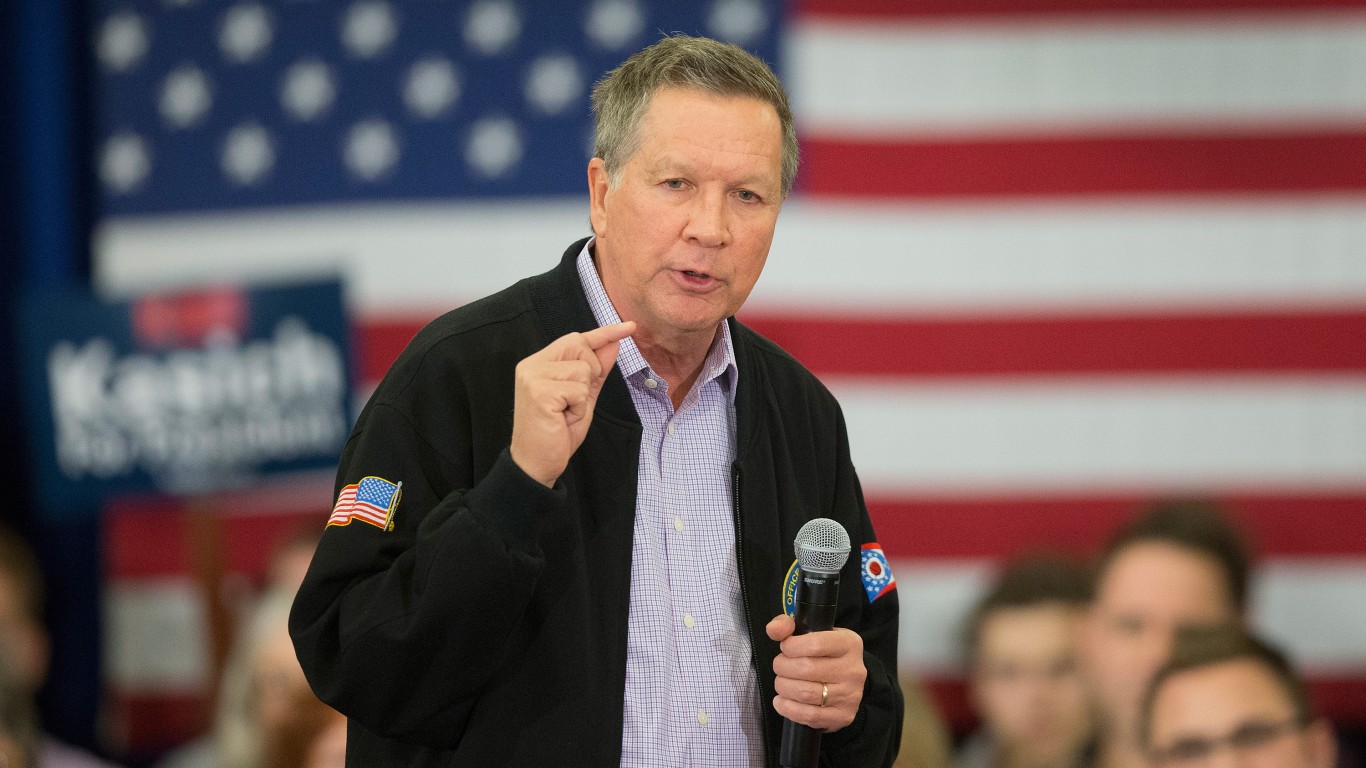
John R. Kasich
> Share of votes: 15.7% (44,932)
Gov. John Kasich of Ohio finished second in the New Hampshire primary, well behind Donald Trump. Kasich, a moderate Republican who backed a path to citizenship for undocumented immigrants, would only win his own state during the primary season. He ended his campaign in May before the Republican National Convention.
Take This Retirement Quiz To Get Matched With An Advisor Now (Sponsored)
Are you ready for retirement? Planning for retirement can be overwhelming, that’s why it could be a good idea to speak to a fiduciary financial advisor about your goals today.
Start by taking this retirement quiz right here from SmartAsset that will match you with up to 3 financial advisors that serve your area and beyond in 5 minutes. Smart Asset is now matching over 50,000 people a month.
Click here now to get started.
Thank you for reading! Have some feedback for us?
Contact the 24/7 Wall St. editorial team.
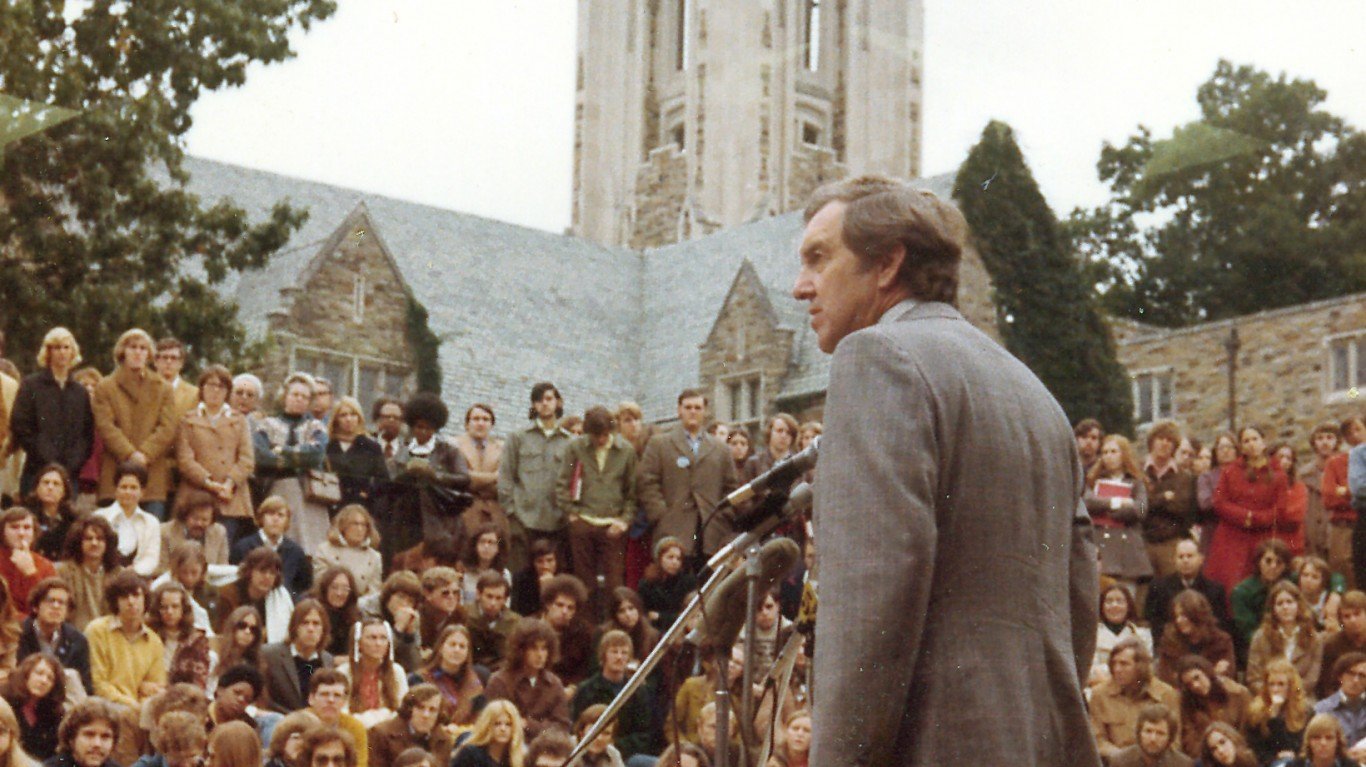
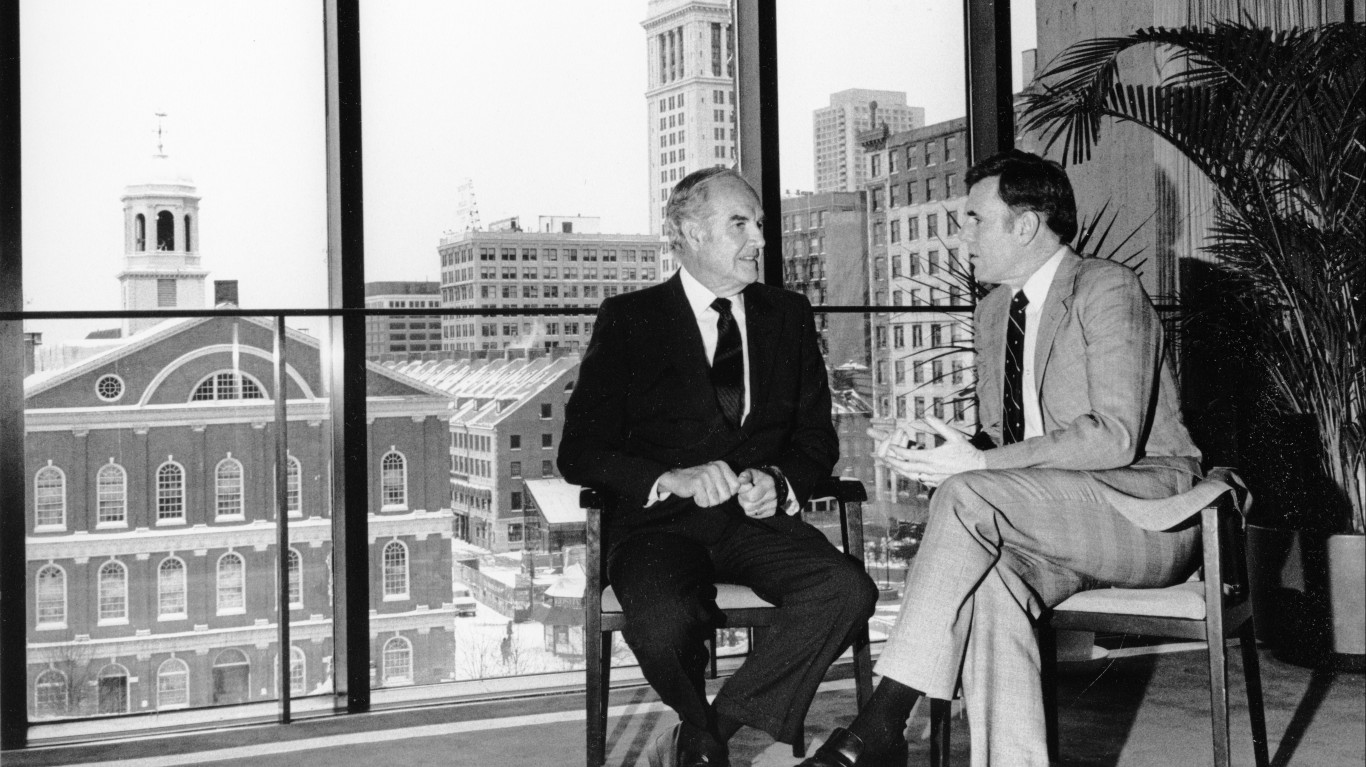
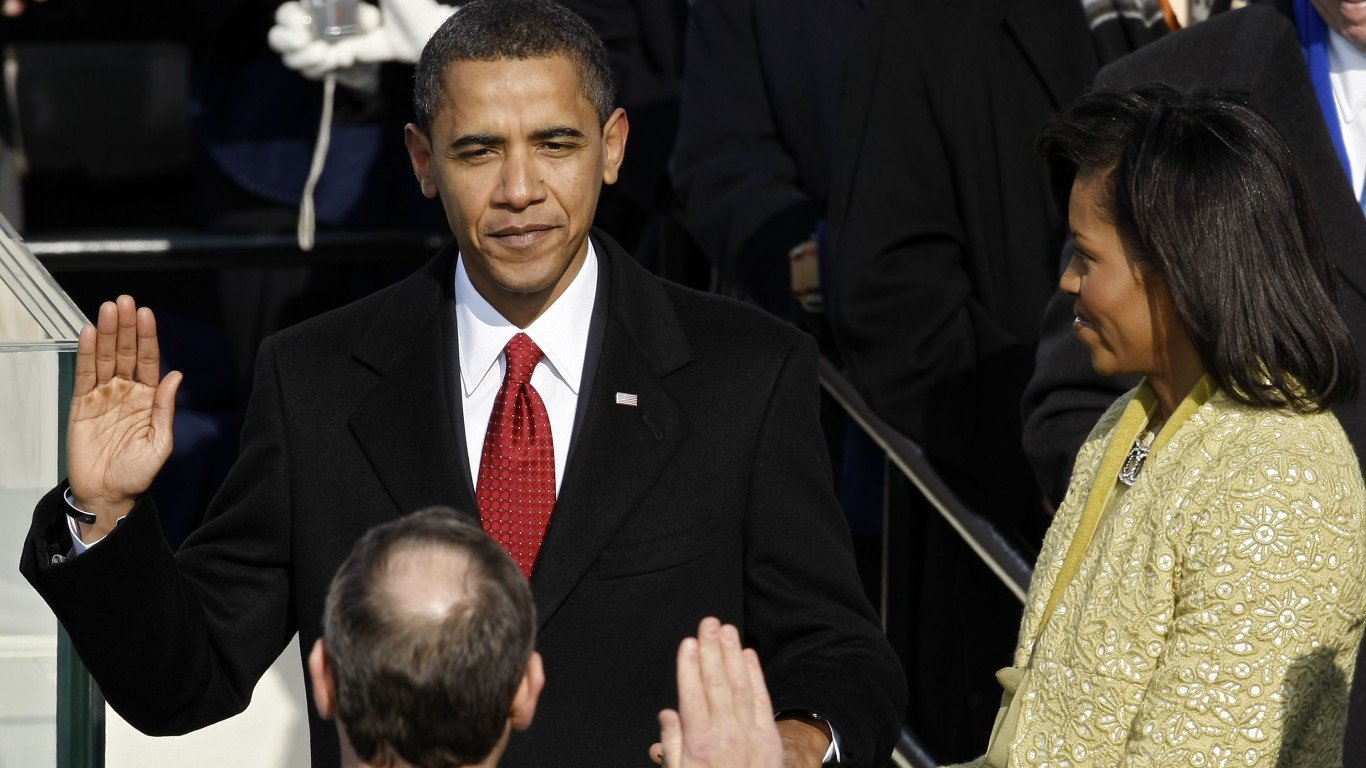 24/7 Wall St.
24/7 Wall St.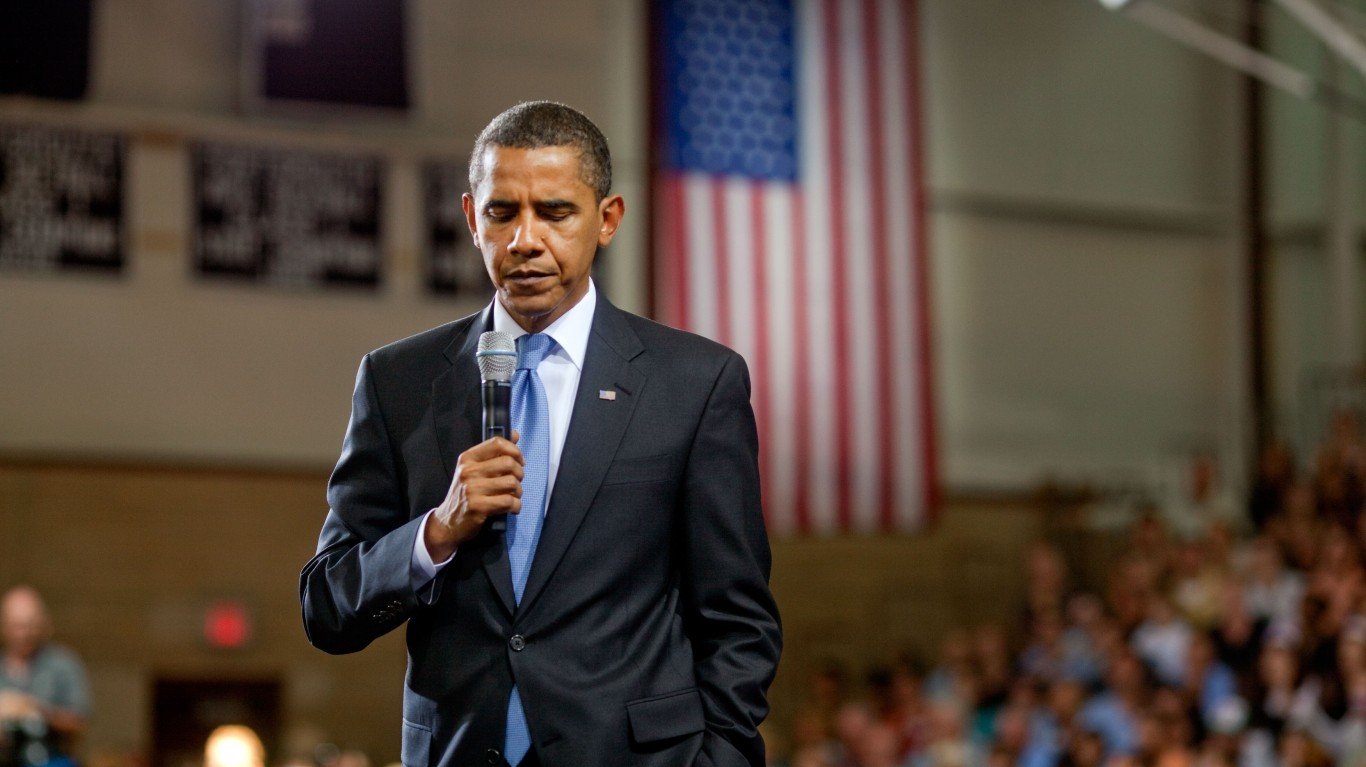 24/7 Wall St.
24/7 Wall St.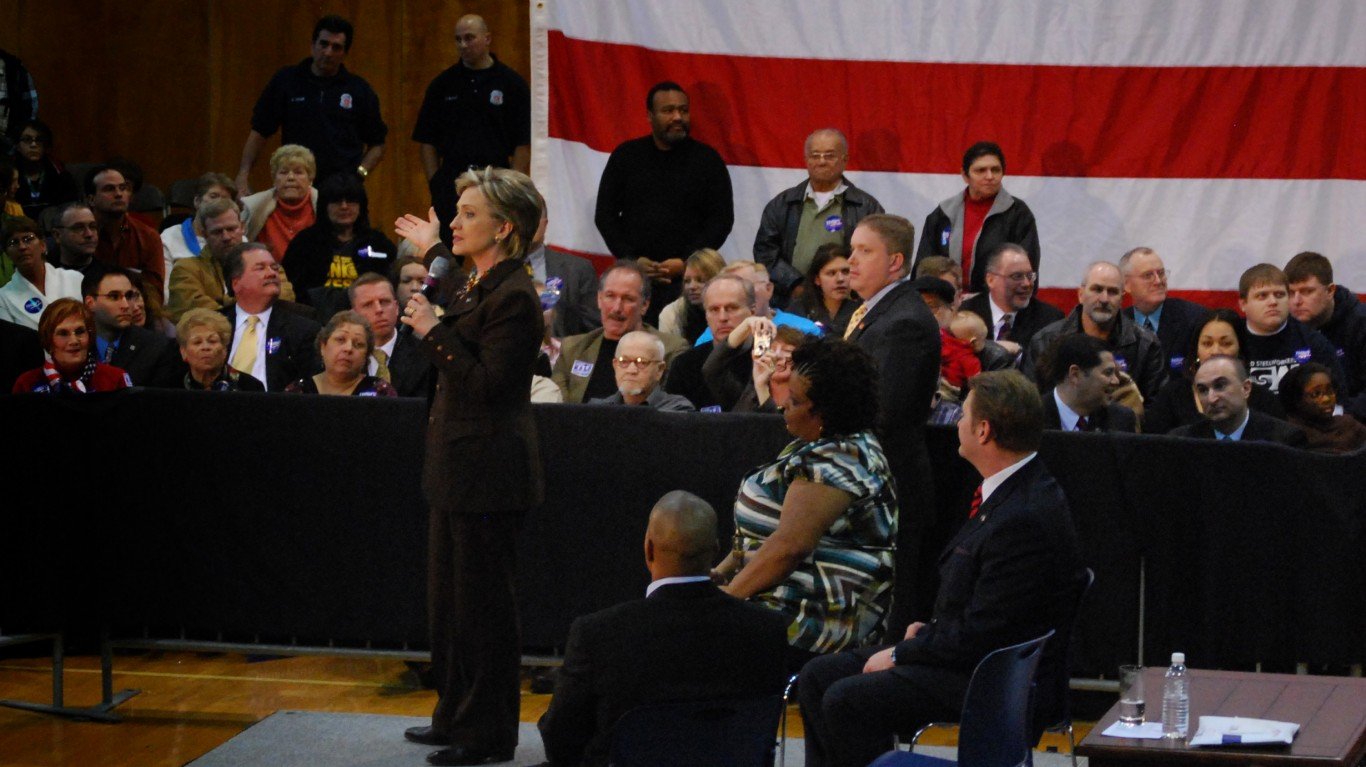
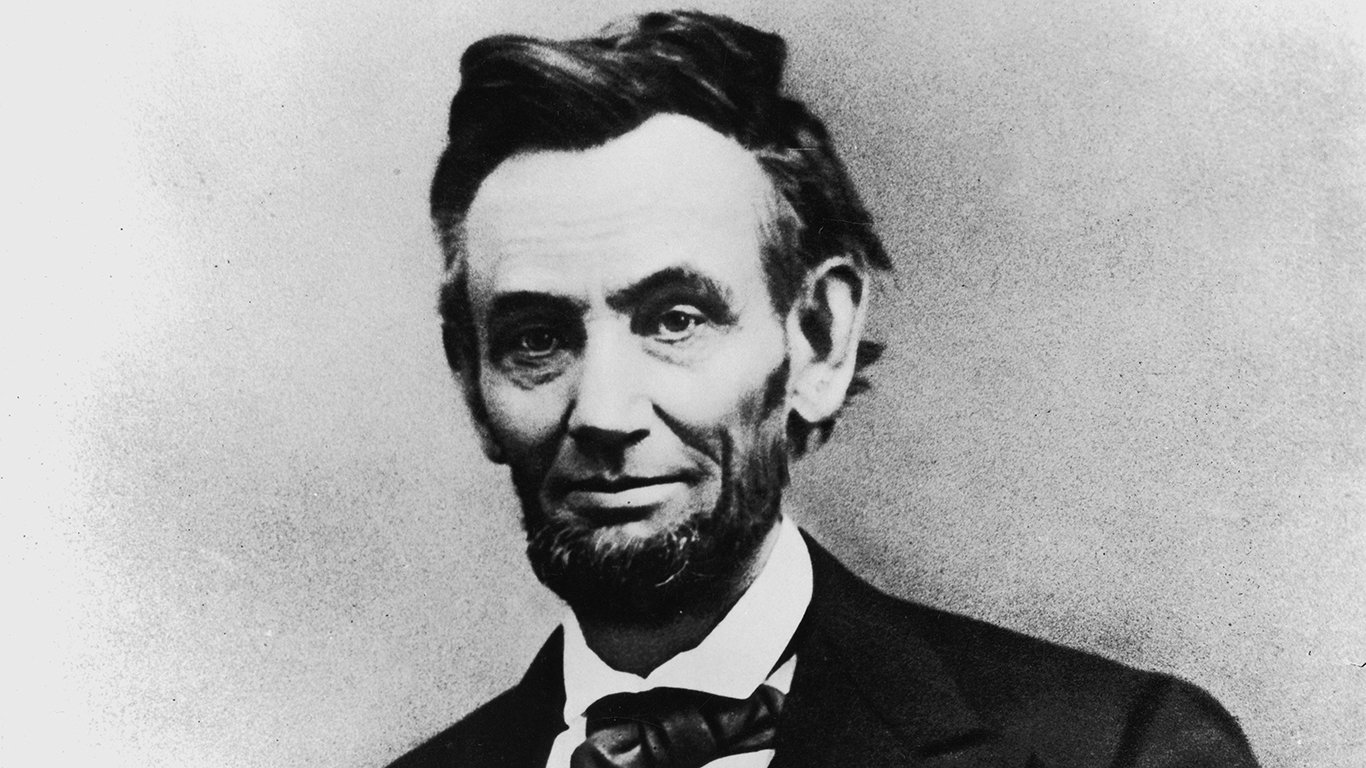 24/7 Wall St.
24/7 Wall St.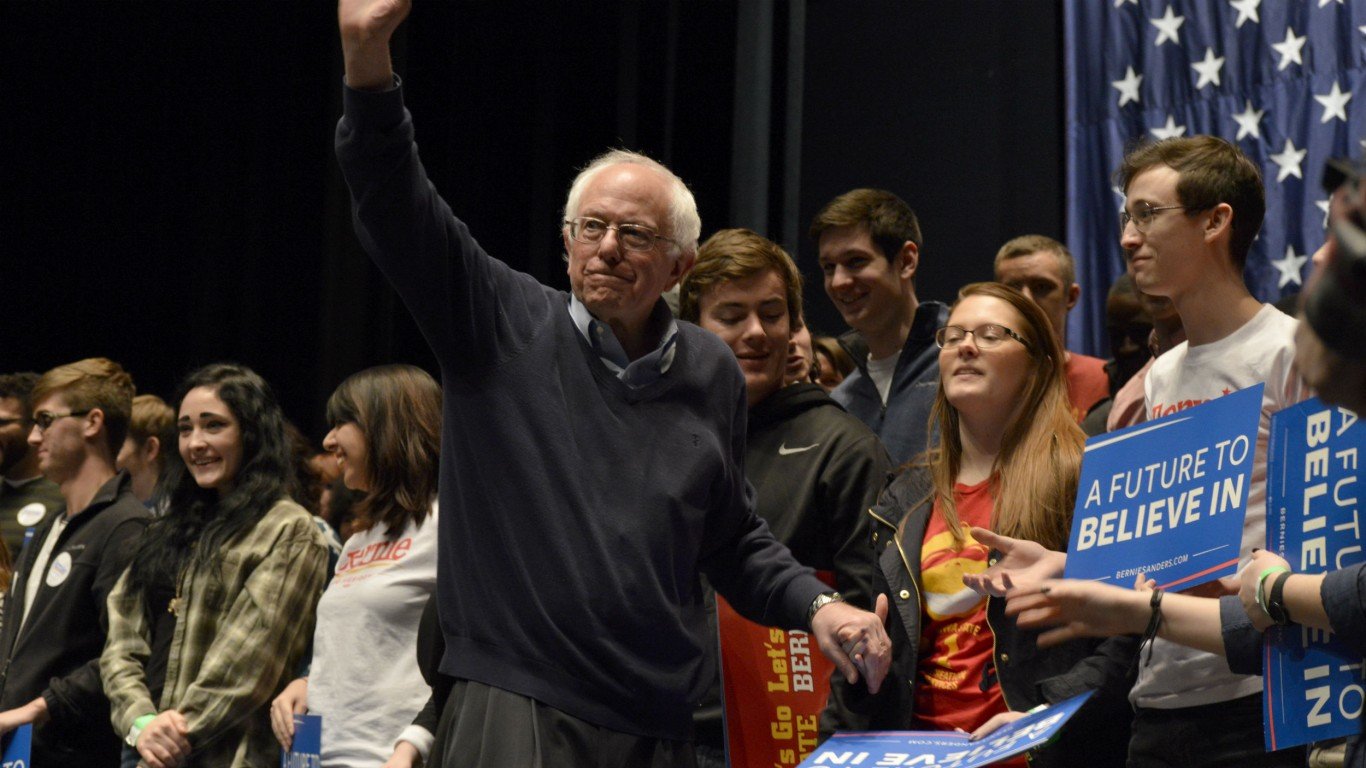
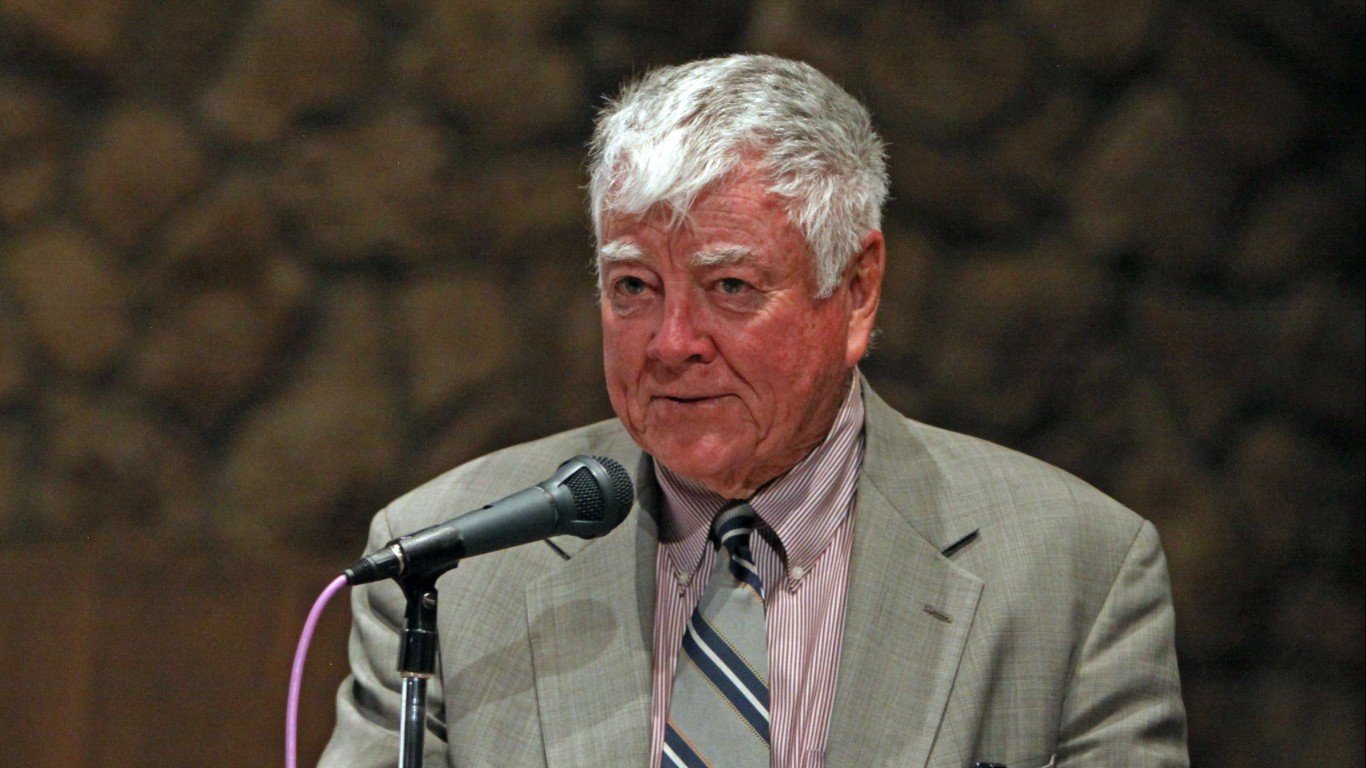
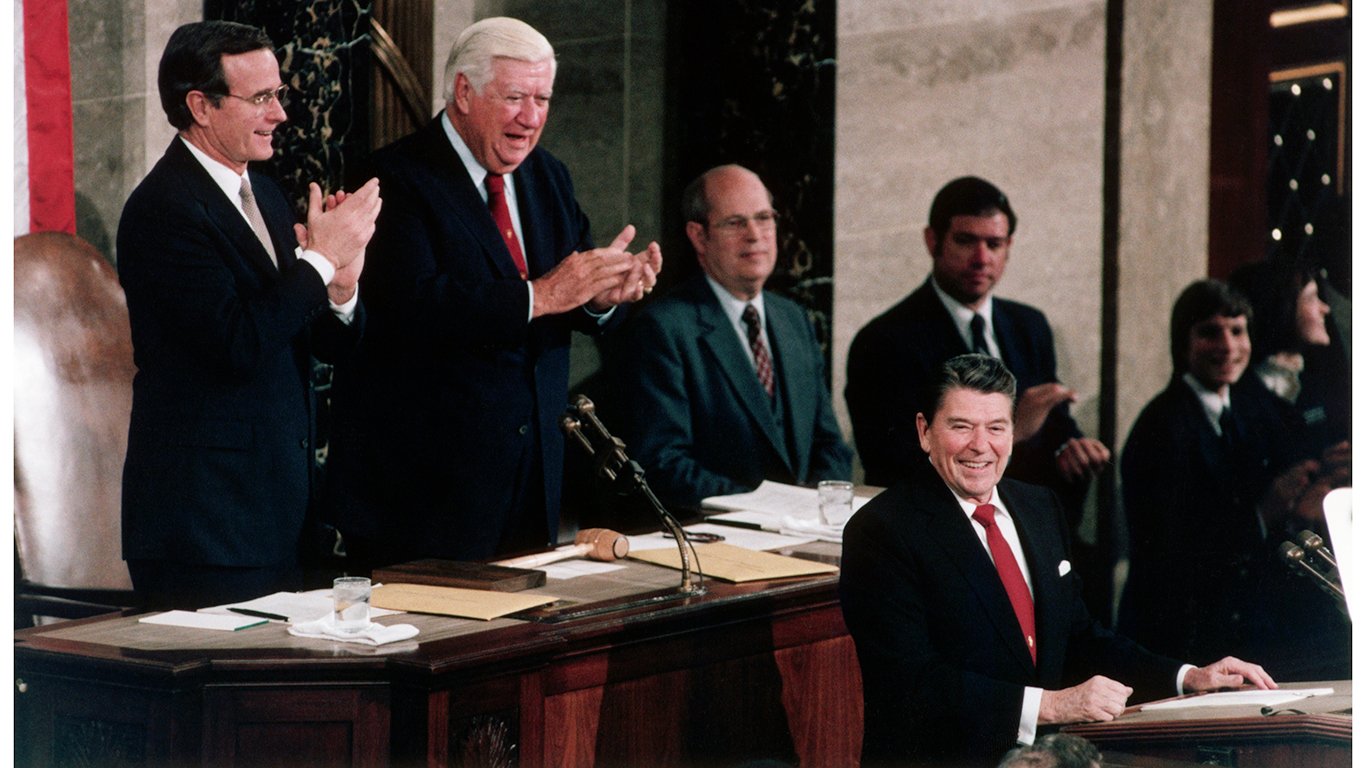 24/7 Wall St.
24/7 Wall St.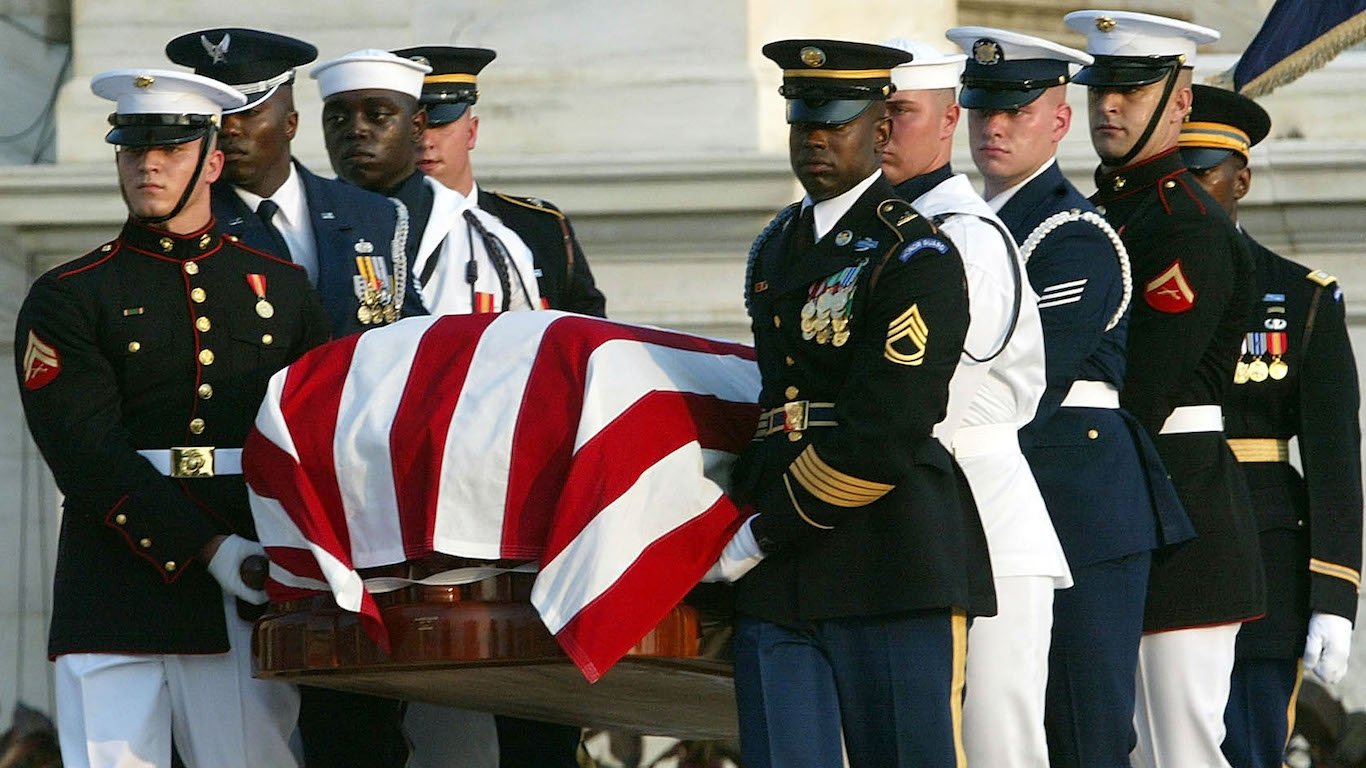 24/7 Wall St.
24/7 Wall St.
